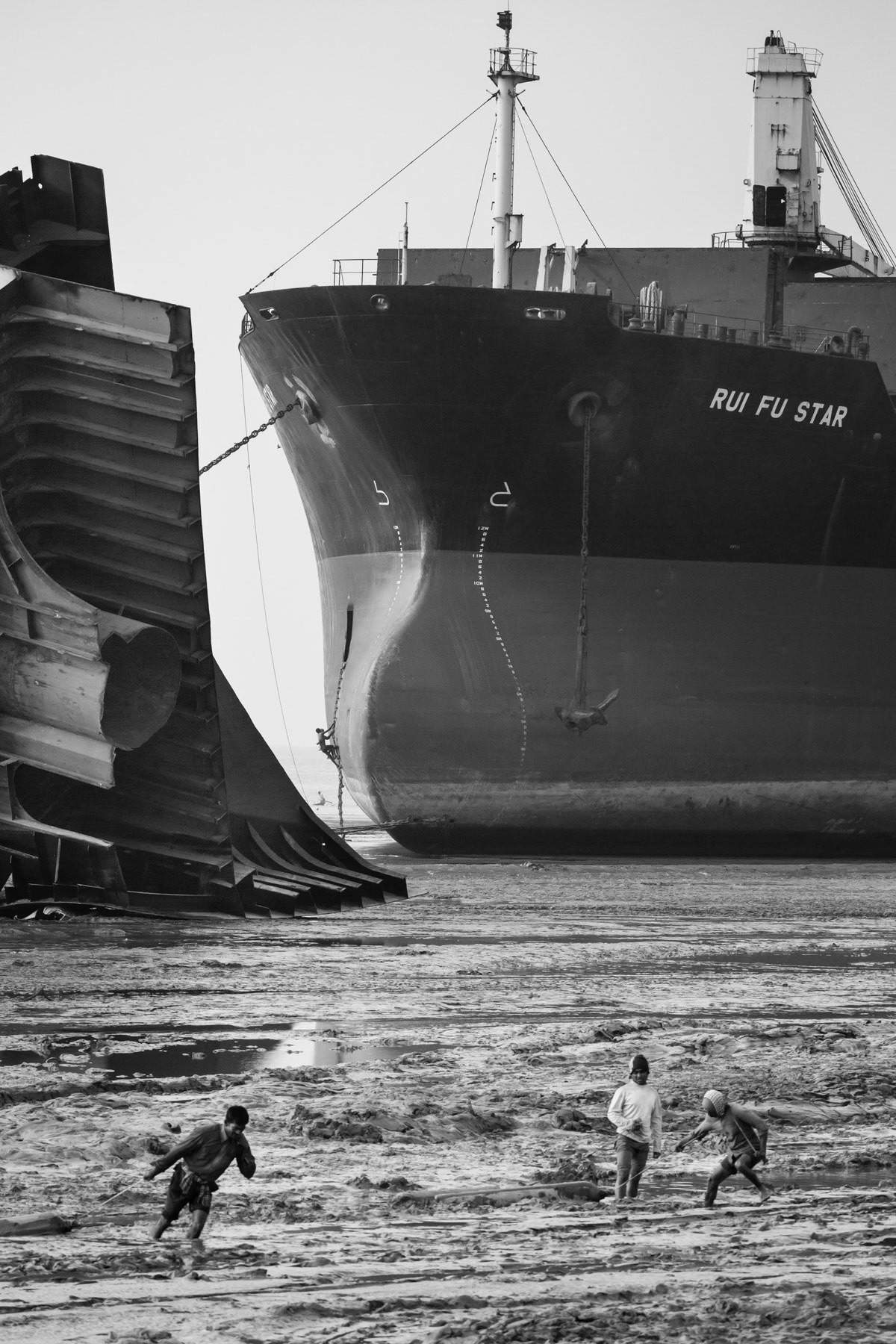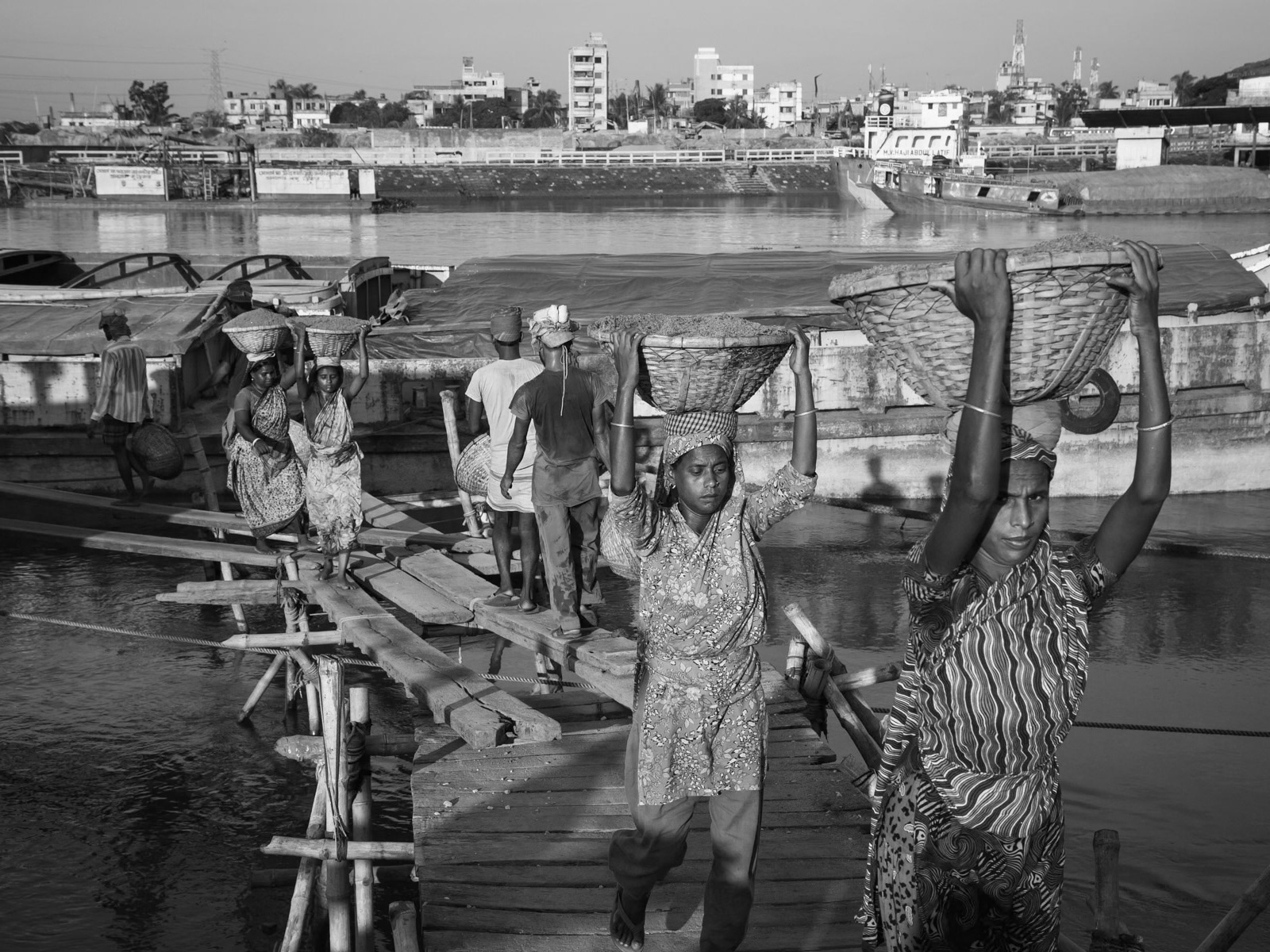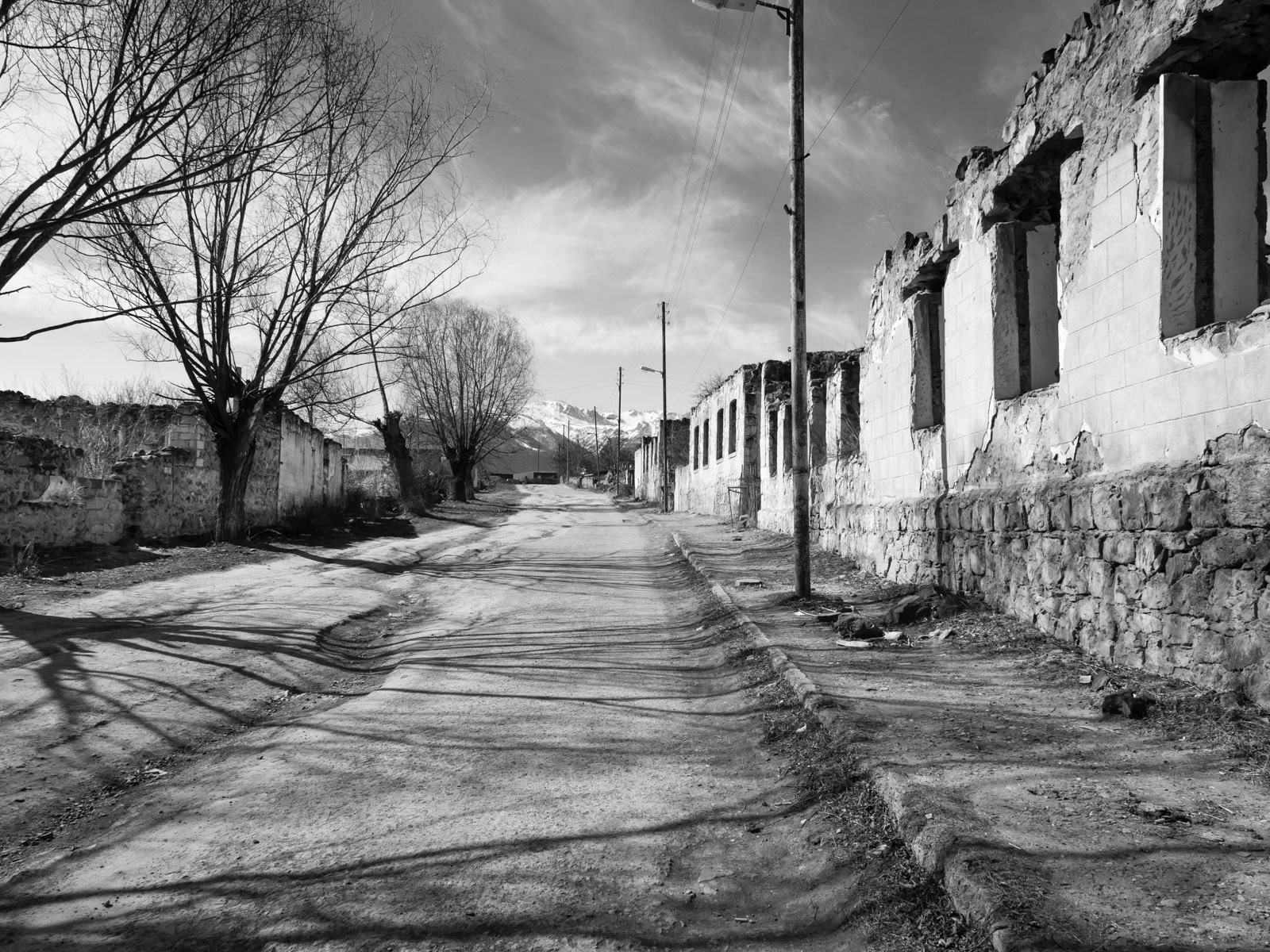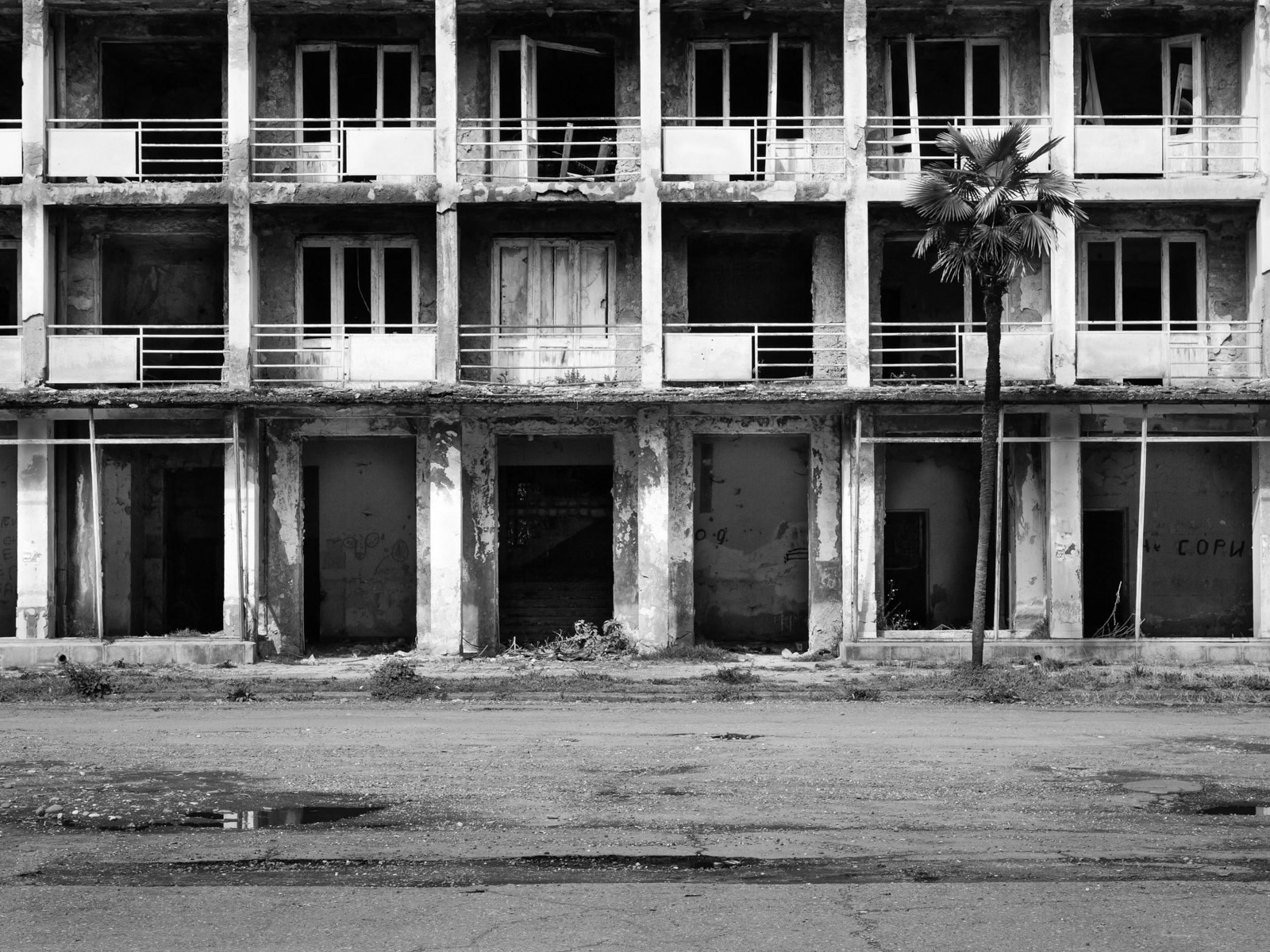The Shipbreaking Industry in Bangladesh: A Notorious Trade
Bangladesh has earned global attention for its controversial shipbreaking industry, a sector shrouded in danger, pollution, and exploitation. This industry revolves around dismantling decommissioned ships—massive vessels deemed unfit for service elsewhere. These ships, which have traversed the world’s oceans, meet their grim fate on the beaches of Bangladesh, where they are systematically stripped to their most minute components. Every piece, from metal to machinery, is either recycled or repurposed, often to create new vessels for the local fleet.
The dismantling process begins when ships are beached at high tide. Once ashore, workers, known as ship cutters, manually disassemble these steel giants. Despite the magnitude of their labor, the working conditions are deplorable. These workers, often lacking even basic safety equipment, endure direct exposure to toxic fumes, oils, and hazardous substances embedded in the ships’ structures. Without protective gear or adequate training, they face severe health risks, from respiratory diseases to life-threatening injuries caused by falling debris or accidents with heavy machinery.
Environmental pollution is another alarming consequence of the shipbreaking industry. Toxic chemicals from these vessels seep into the sand and nearby waters, contaminating marine ecosystems and local fishing zones. Yet, shipbreaking yard owners often ignore these environmental and human costs, driven by the promise of maximum profits. The low operational costs and lax enforcement of safety and environmental regulations make Bangladesh an attractive destination for shipbreaking. This prioritization of profit over people perpetuates the grim cycle of exploitation and environmental degradation.
Despite its notoriety, the industry remains a significant economic contributor, providing materials for Bangladesh’s steel and shipbuilding industries and jobs for thousands of impoverished workers. However, the cost of this economic activity—a high toll on human lives and the environment—cannot be ignored. Without stringent regulations, proper safety measures, and sustainable practices, the shipbreaking industry in Bangladesh will continue to symbolize a troubling blend of profit-driven exploitation and environmental neglect.
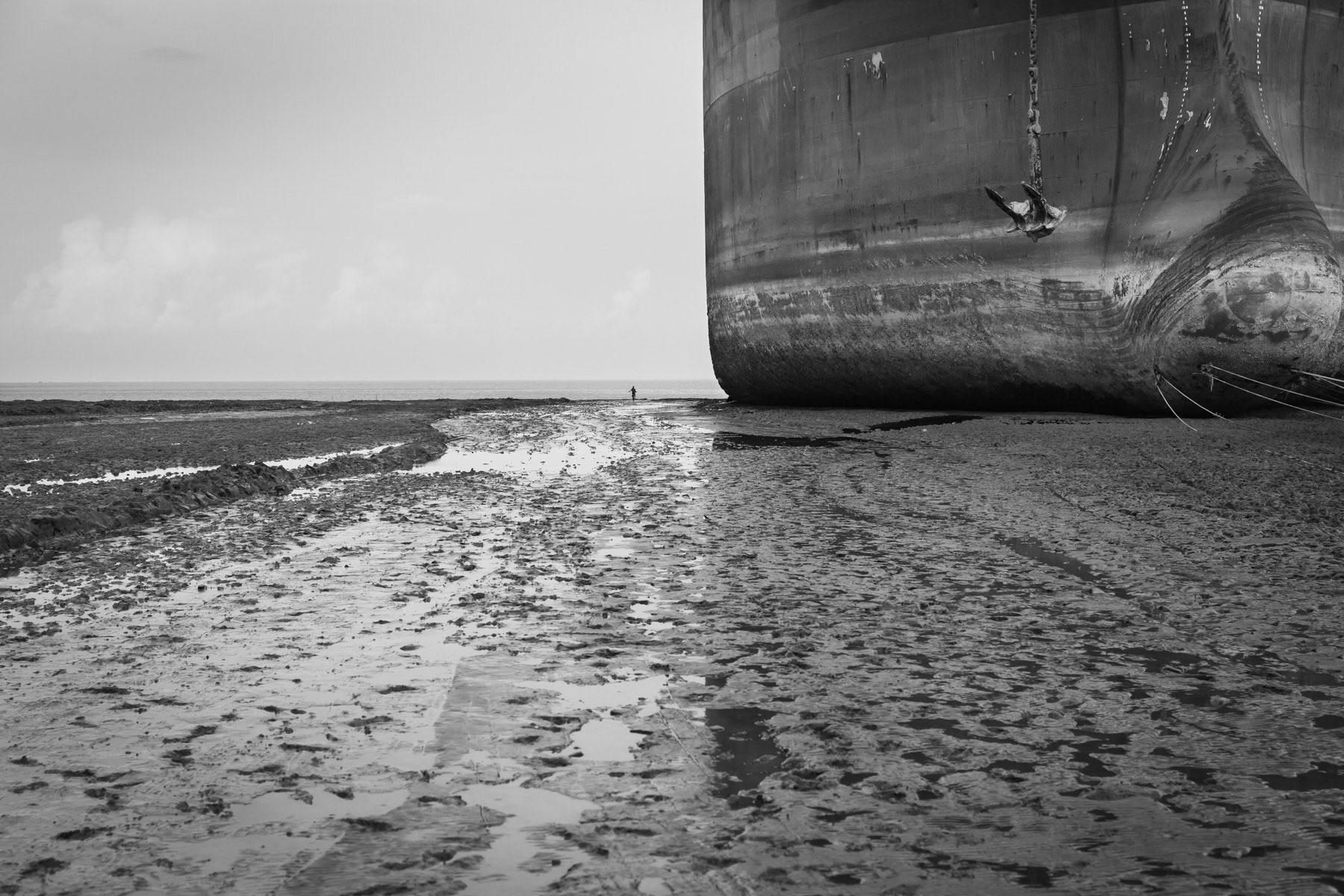
The vessels reach their final destination when they are beached during high tide. They will consequently be cut in pieces on the beach by ship cutters. Recently beached ship at his final destination where it will be dismanteled on the spot, Chittagong ship-breaking yards in the Bay of Bengal, Bangladesh, June 2015
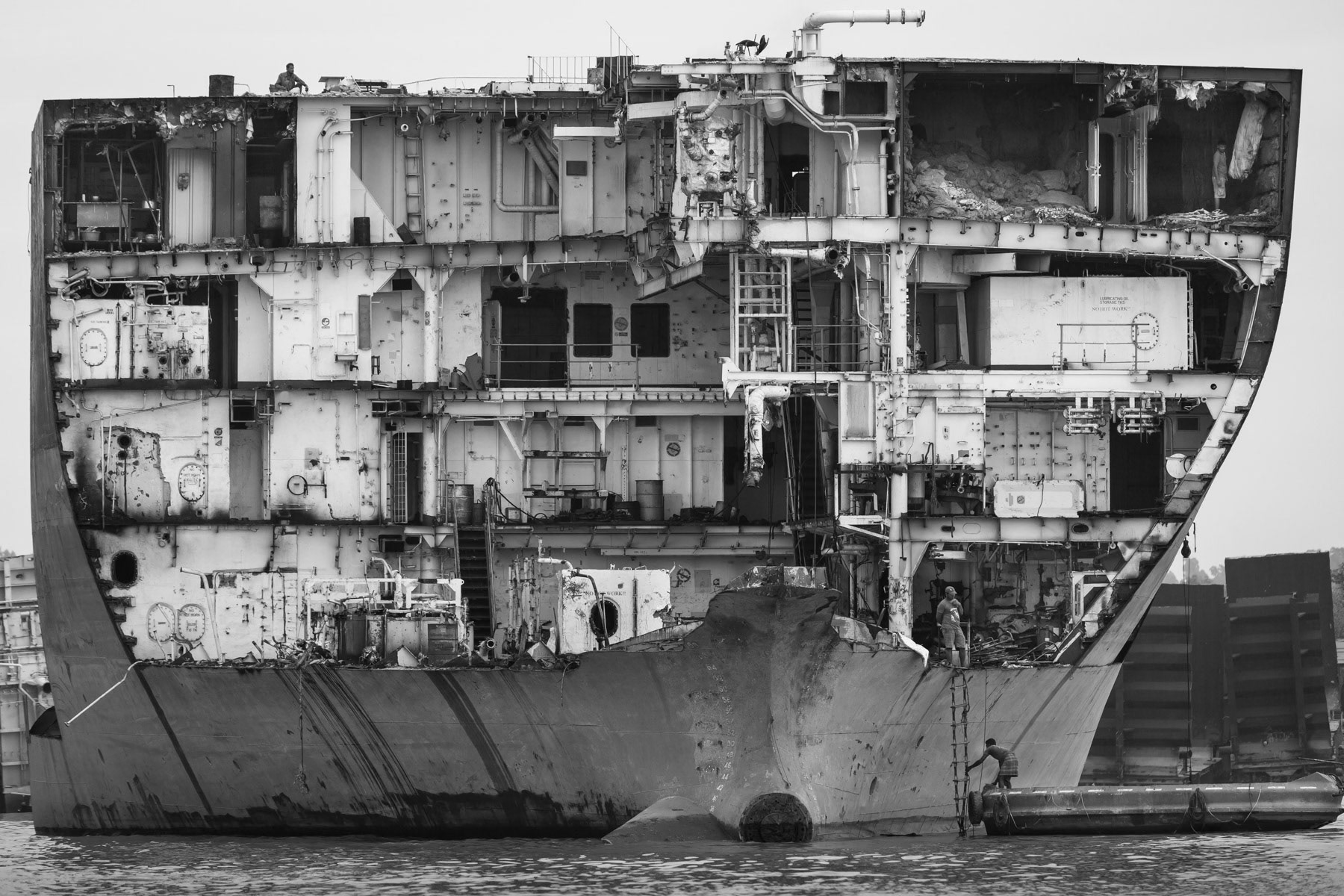
Final stage of a dismembered boat. Bhatiary ship breaking yards, Bangladesh, October 2014
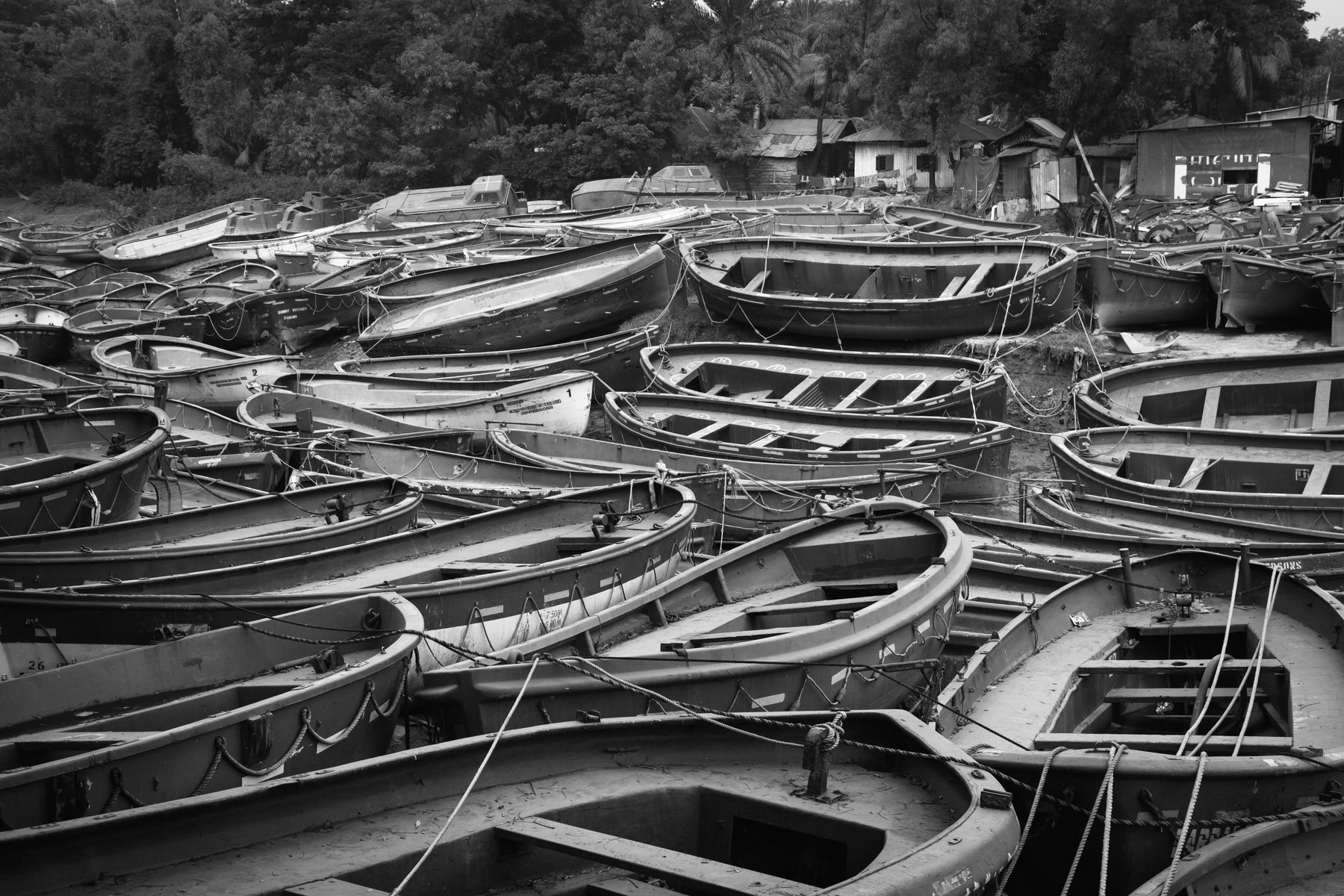
Dismantled life rafts on sale that will be used for local transportation and as fishing boats. Chittagong, Bangladesh, October 2014
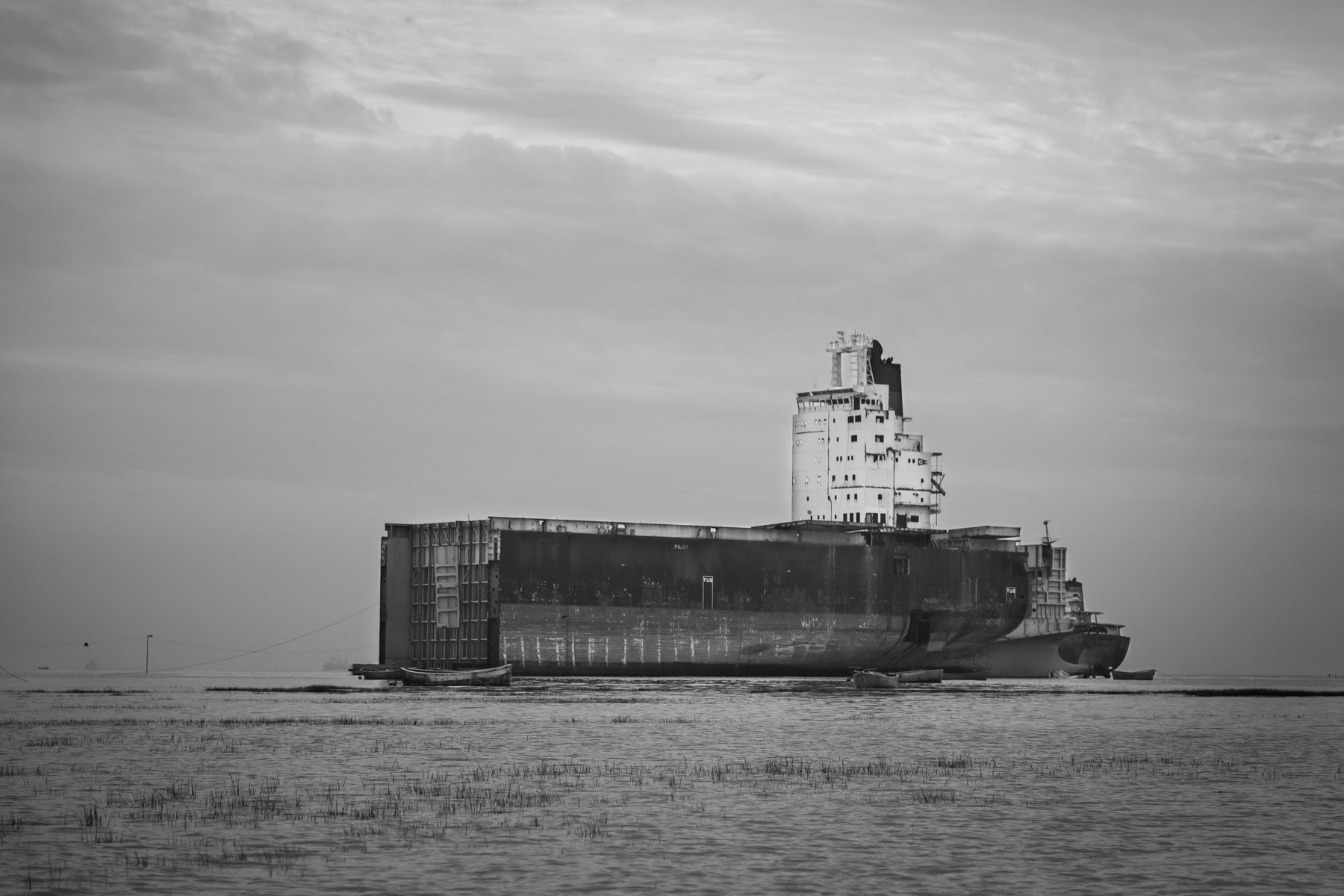
Ship breaking yard on the beach of Bhatiary south of Chittagong, Bangladesh, October 2014
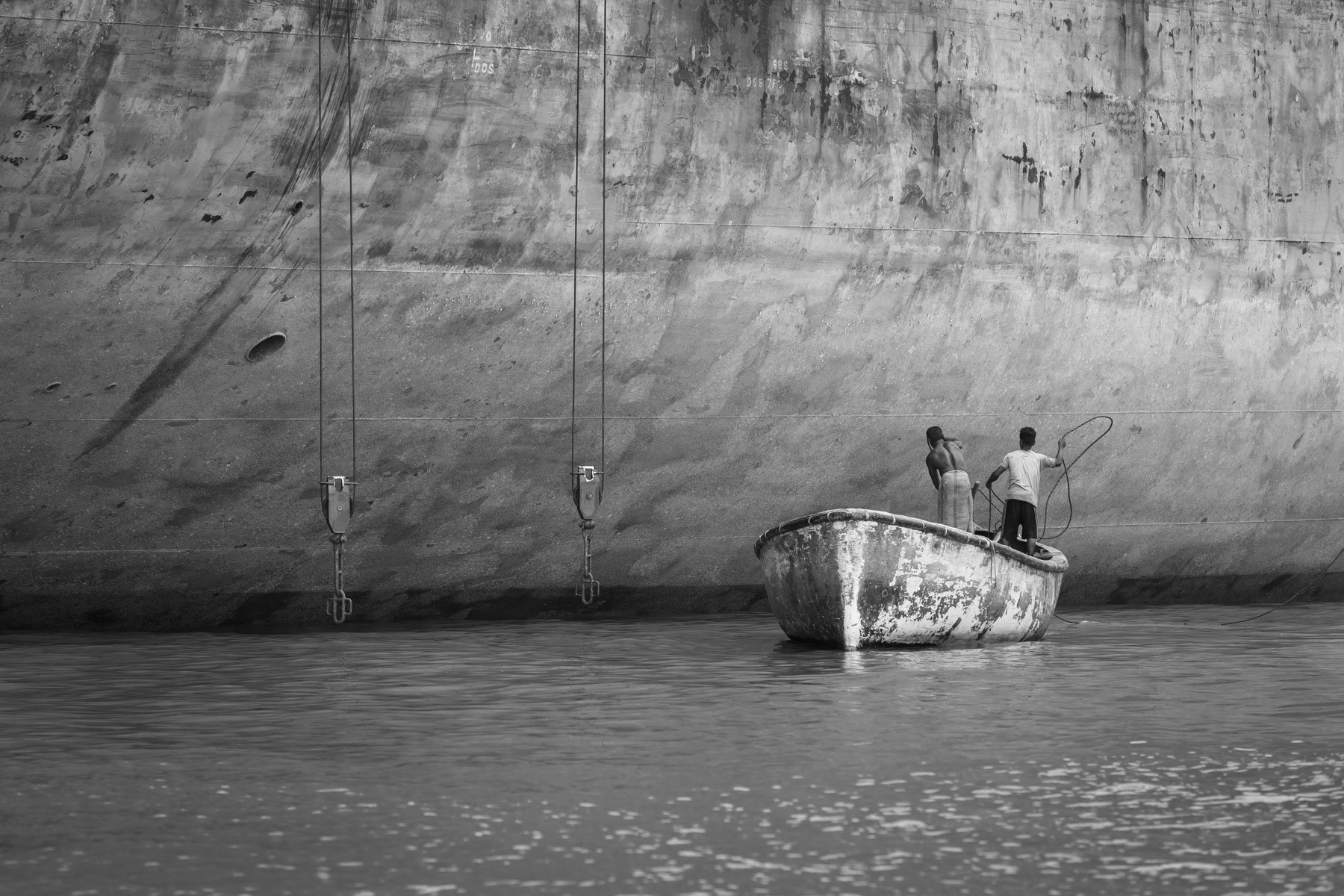
During high tide, the only possibility to reach the huge ships stranded for breaking up is by life raft. Bhatiary ship breaking yards, Bangladesh, October 2014
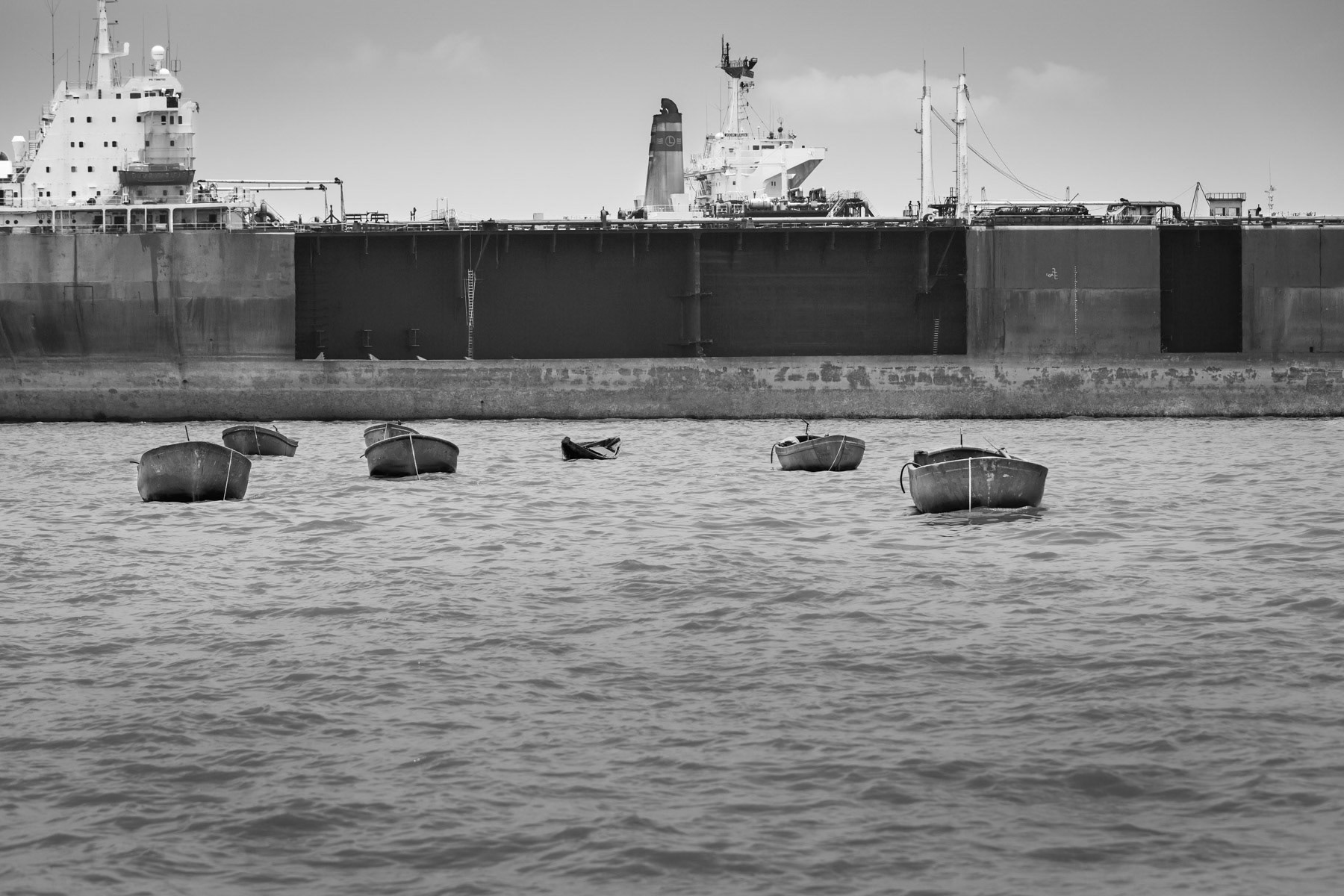
Ship-breaking yard during high tide, Bhatiary north of Chittagong, Bangladesh, June 2015
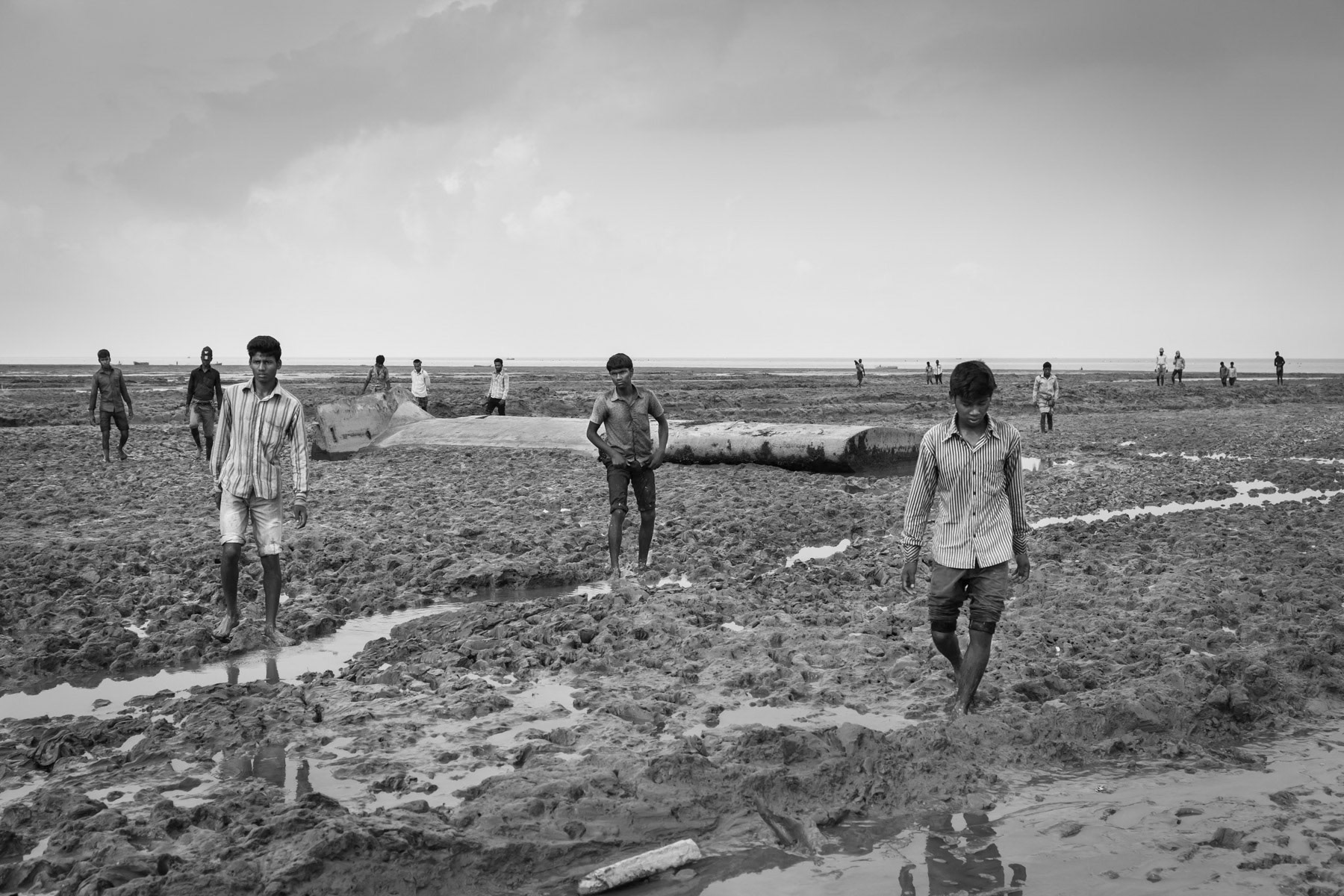
Ship-breaking yard workers, Chittagong, Bangladesh, June 2015
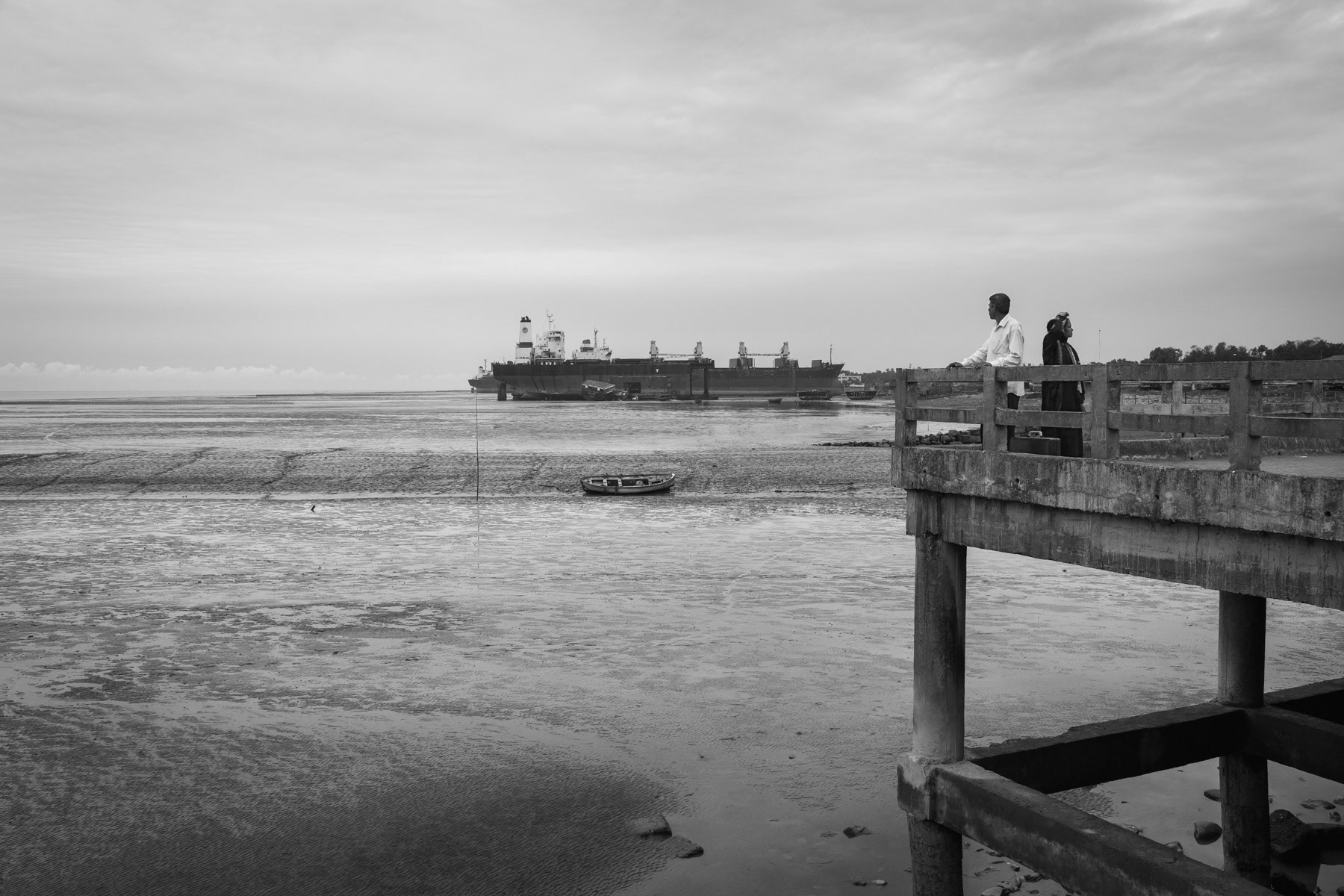
Ship breaking yards on the beach during low tide, Kumira, Bangladesh, October 2014
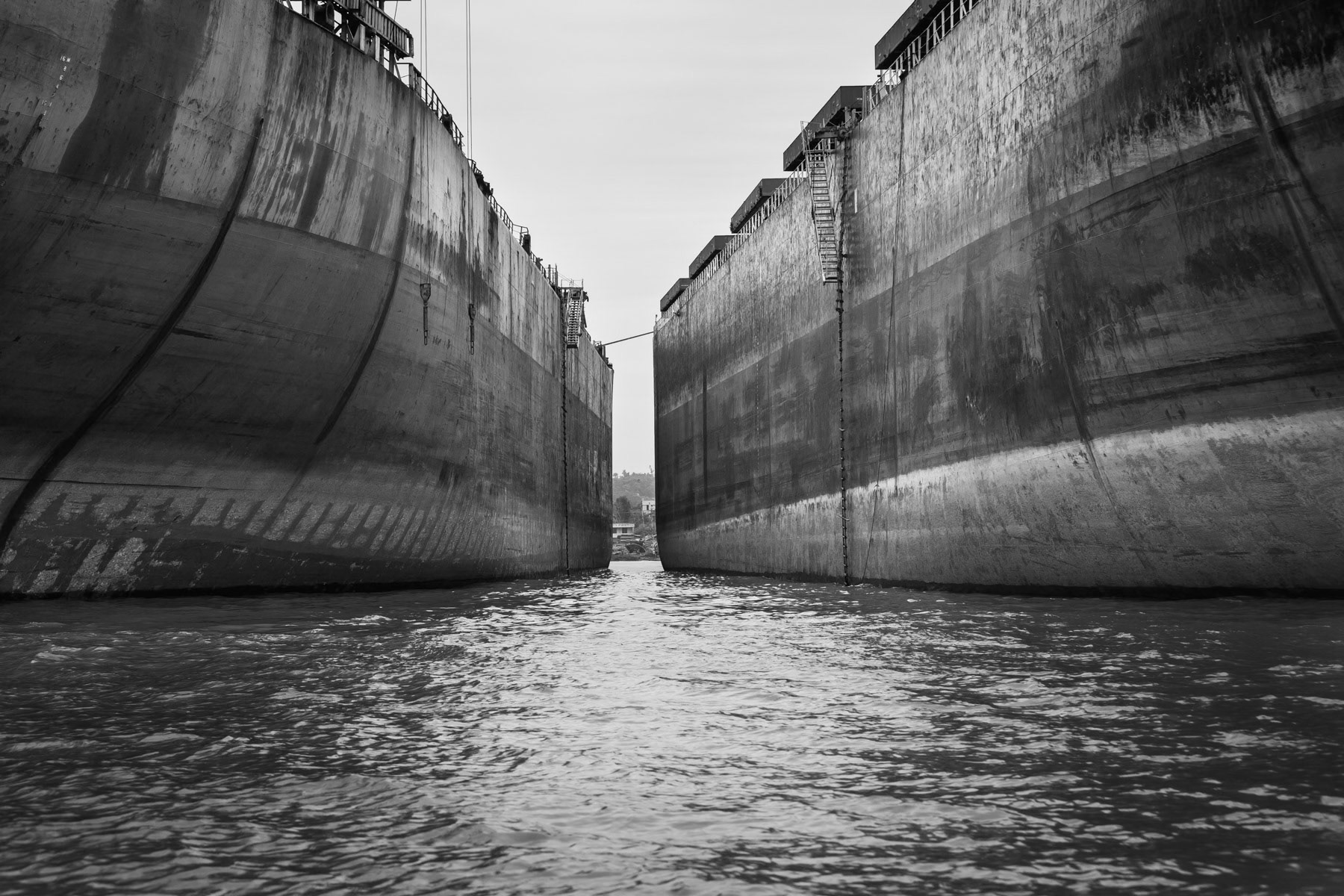
Remains of the hull before being cut in pieces. Most ship equipment has already been dismantled before the final disassemble. Bhatiary ship breaking yards, Bangladesh, October 2014
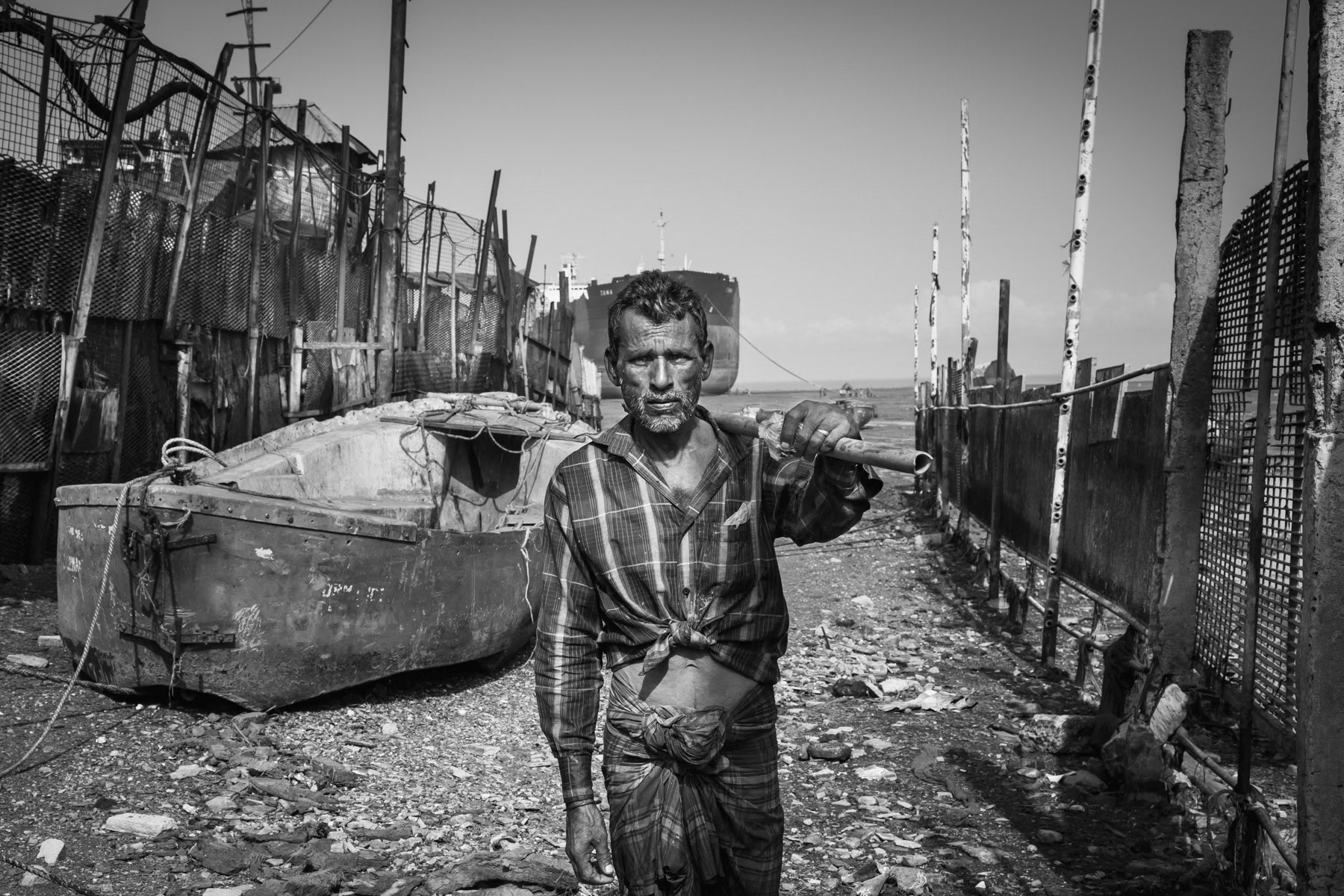
Passage between two ship-breaking yards used by local communities to access the sea and fish. Sainbolt, Chittagong, June 2015
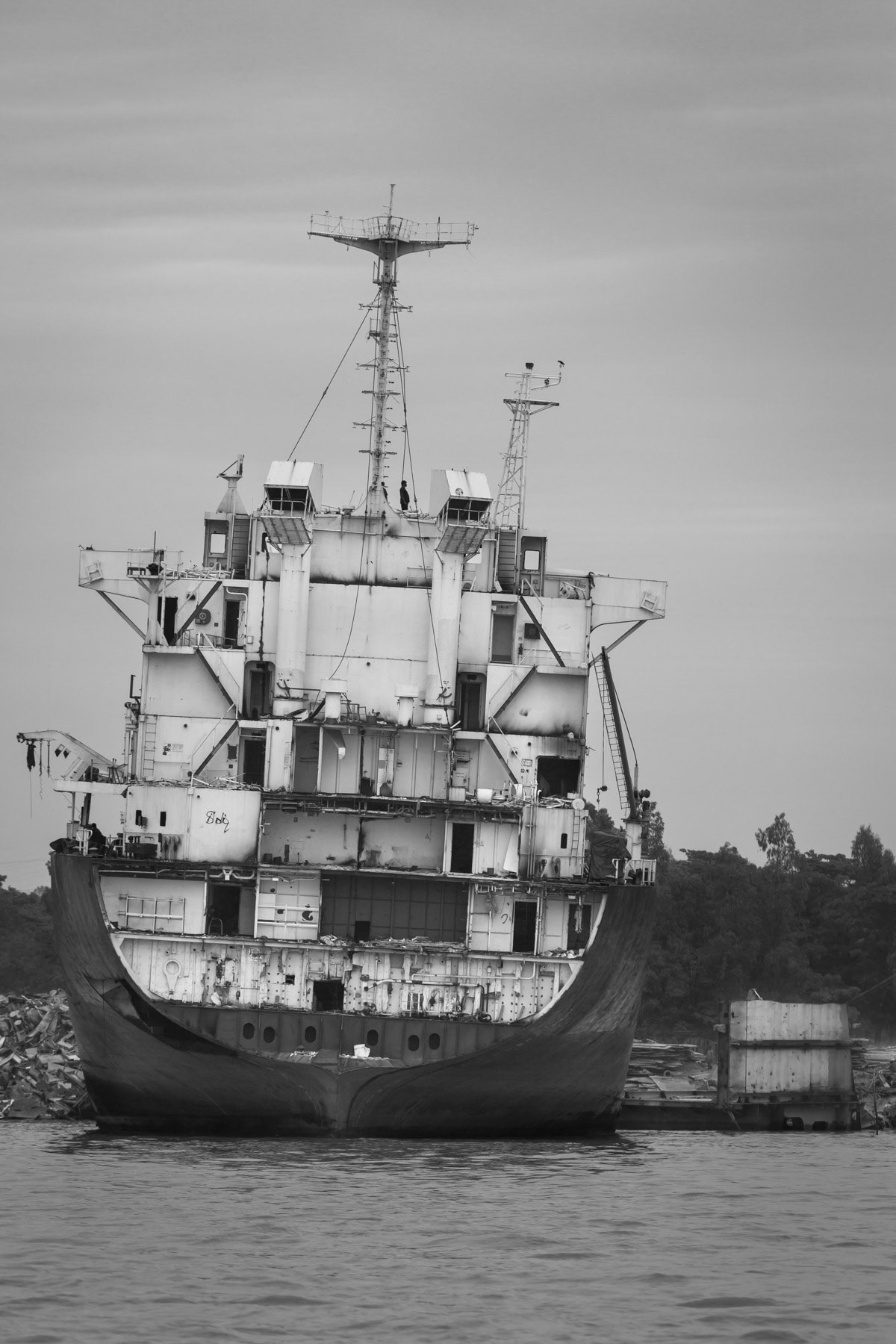
Bhatiary ship breaking yards, Bangladesh, October 2014
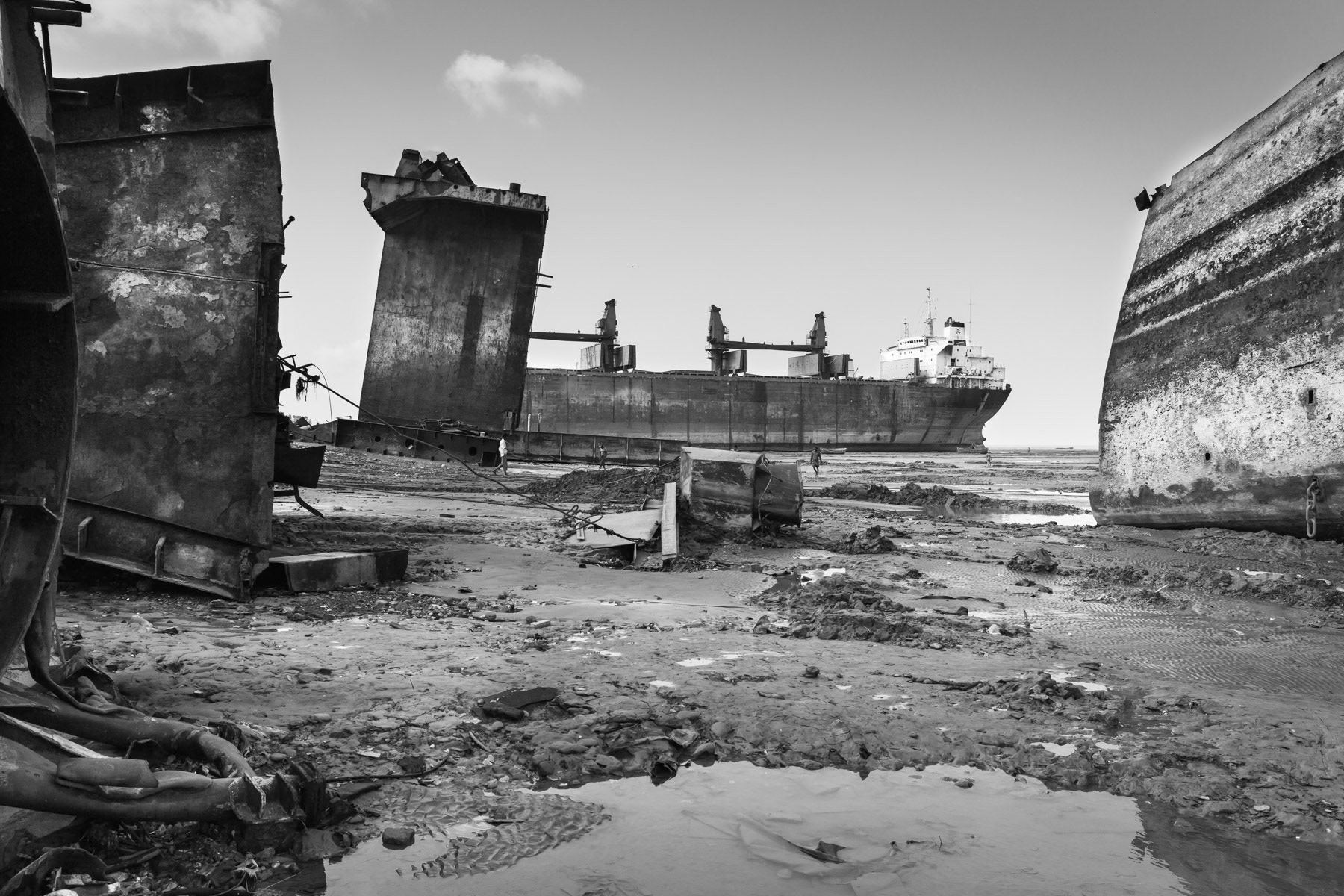
Cut-off ship parts waiting to be reduced to smaller pieces and recycled, Ship-Breaking yards in Sainbolt, Chittagong, Bangladesh, June 2015
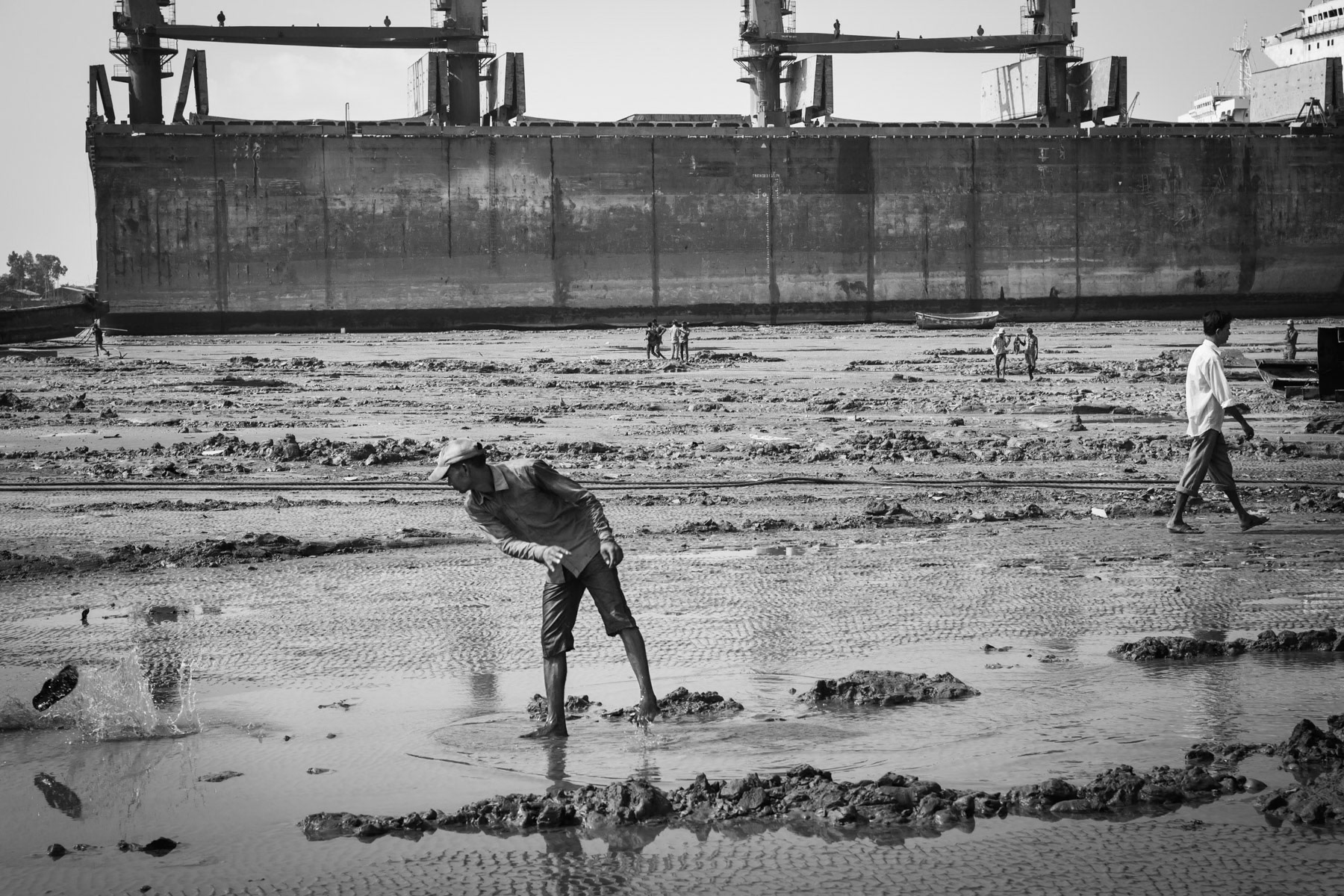
Ship-breaking yards of Chittagong, June 2015
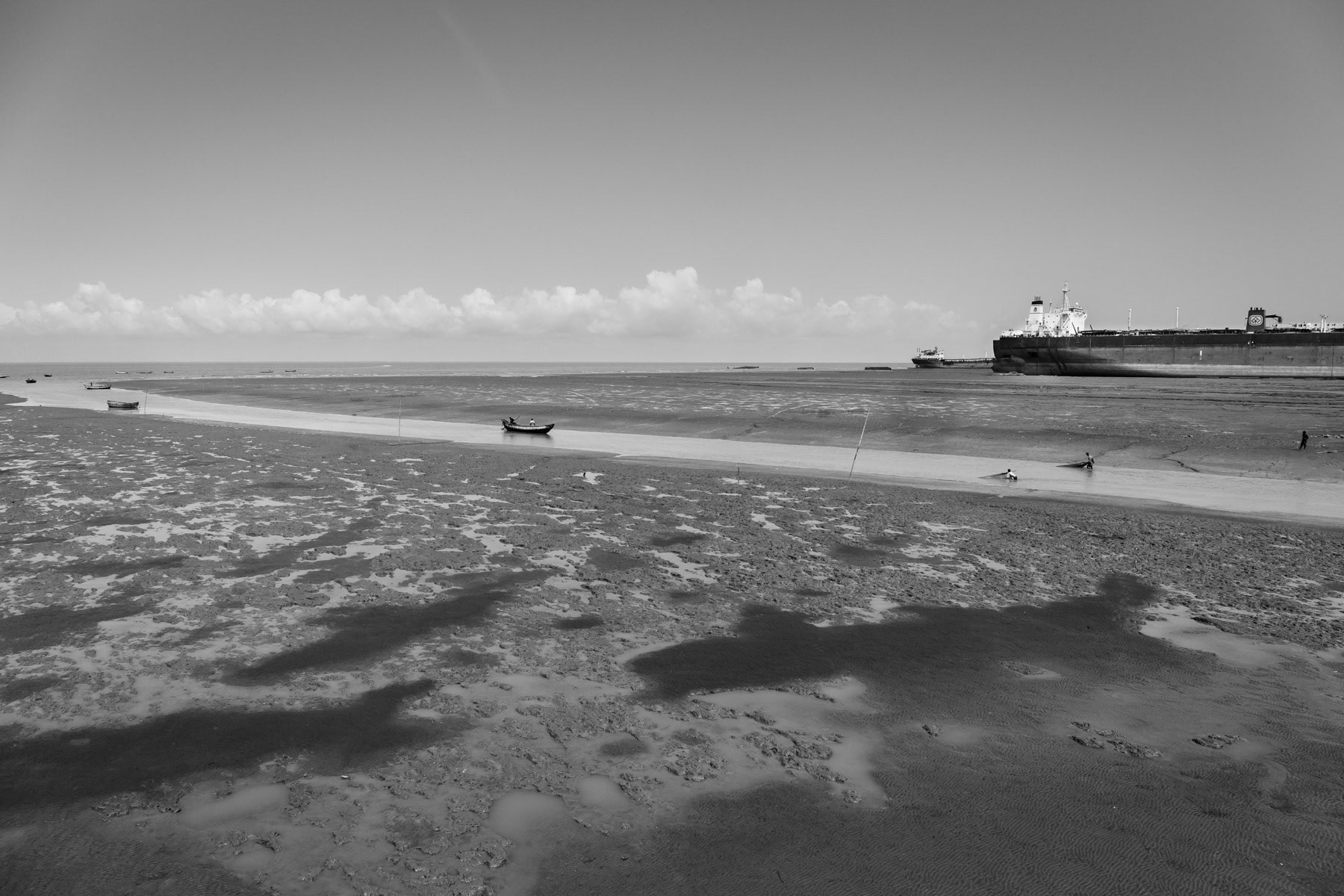
Sanwip Ghat, entry point for small fishing boats and final destination for large vessels. Ship-breaking yards north of Chittagong, Bangladesh, June 2015
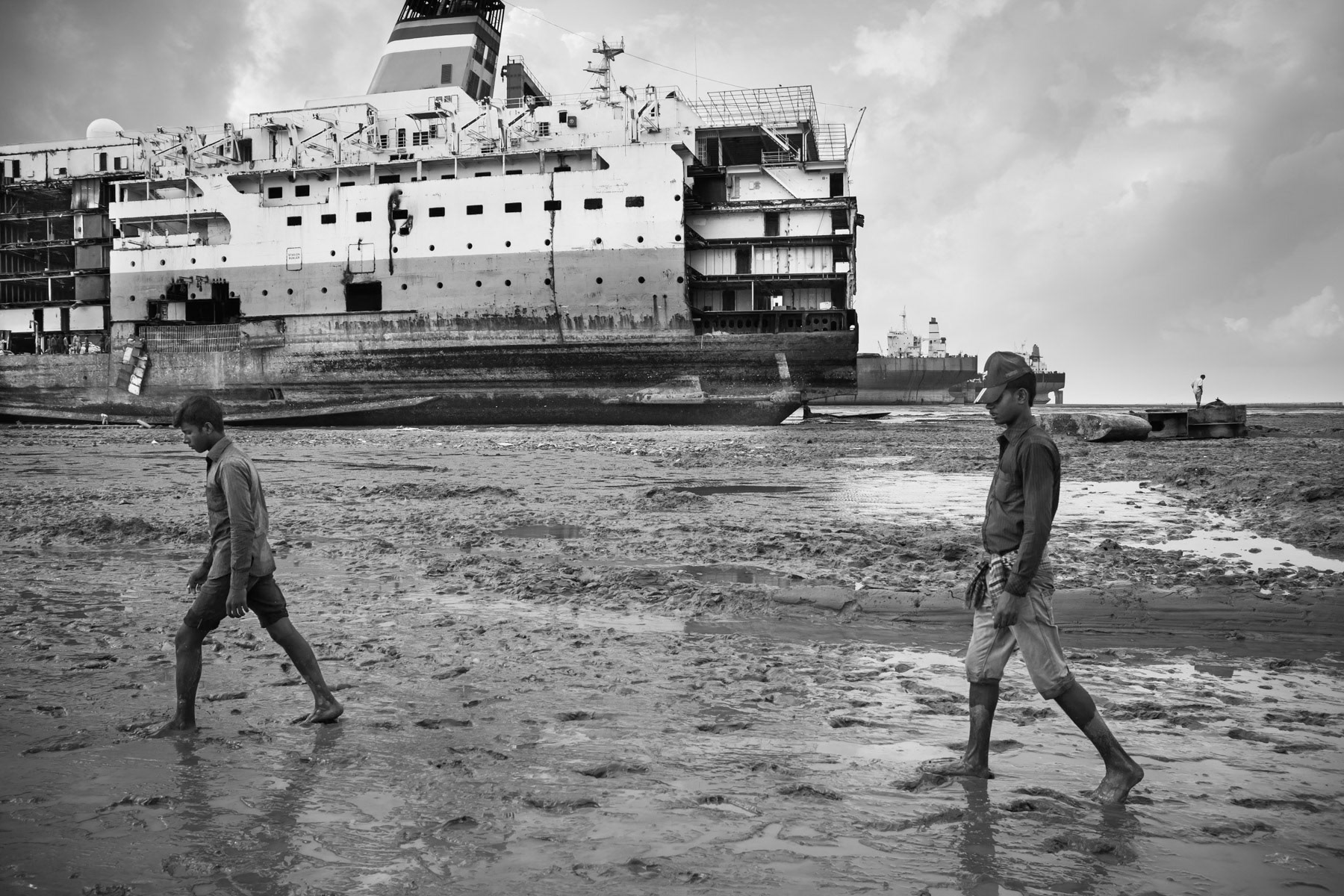
Ship-breaking yard workers, Chittagong, Bangladesh, June 2015
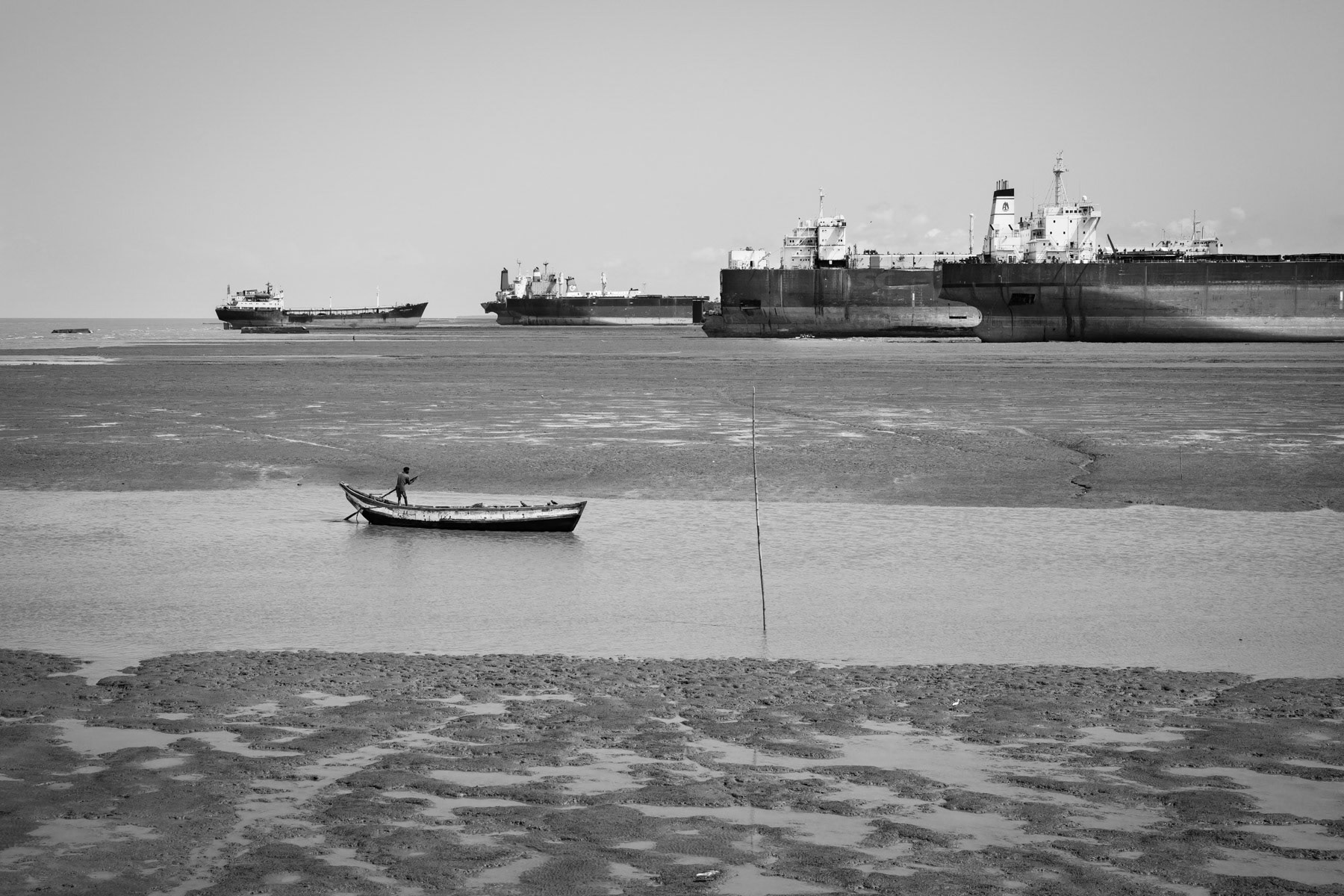
Fisherman returning during low tide, Bhatiary ship-breaking yards, Chittagong, June 2015
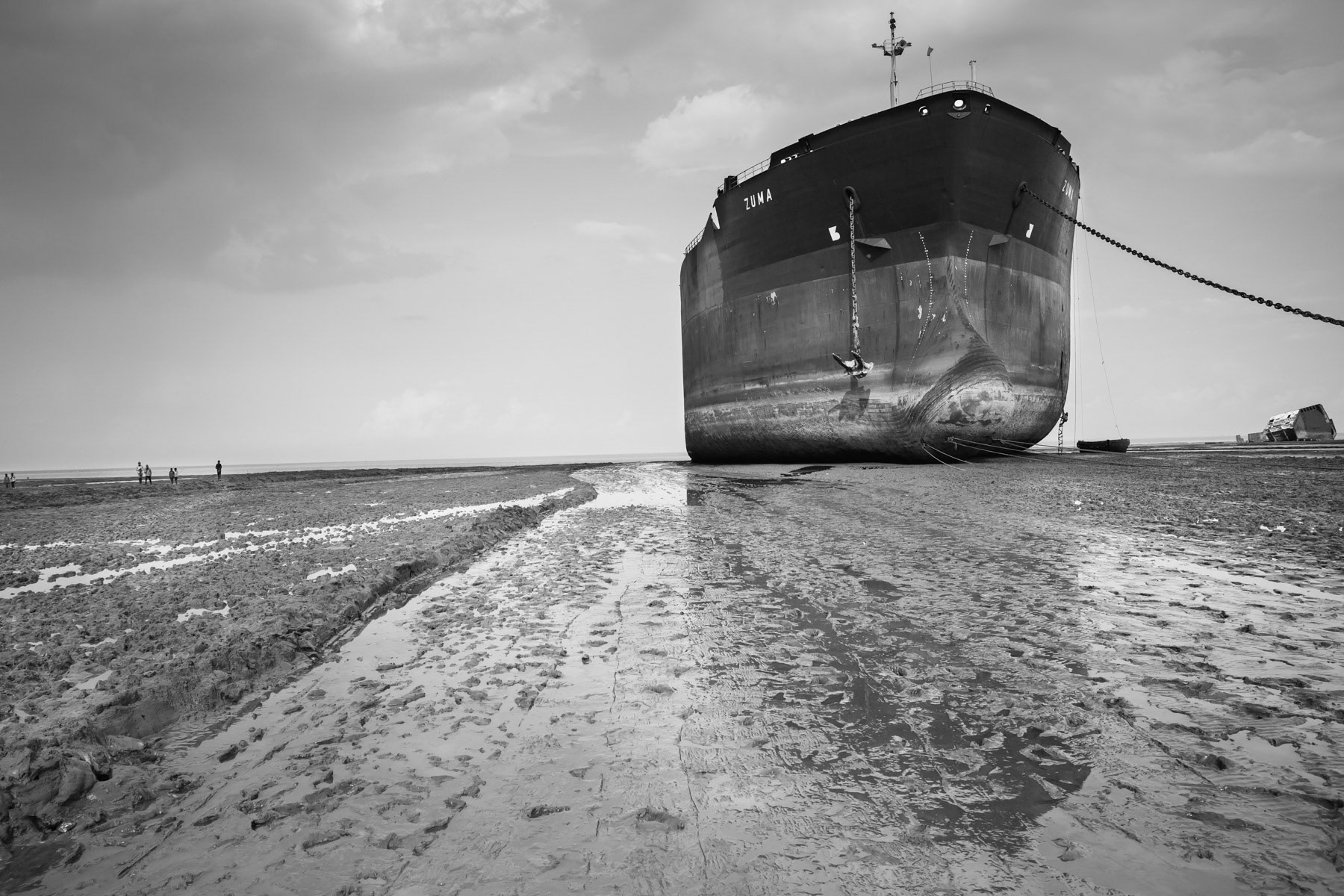
Ship-breaking yards of Chittagong, June 2015
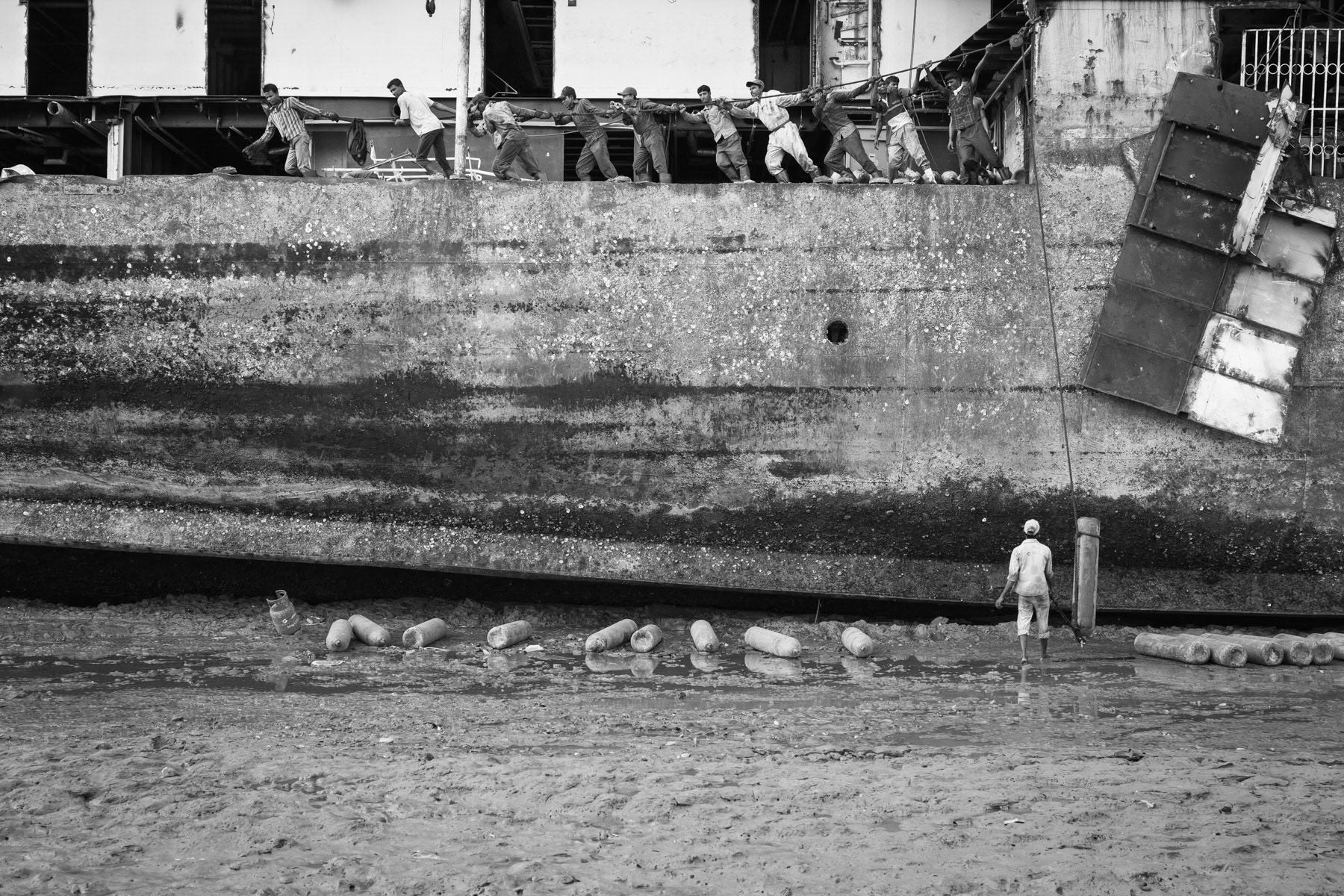
Workers lifting gaz tanks needed to cut the ship in pieces, Chittagong Ship-breaking yards, Bangladesh, June 2015
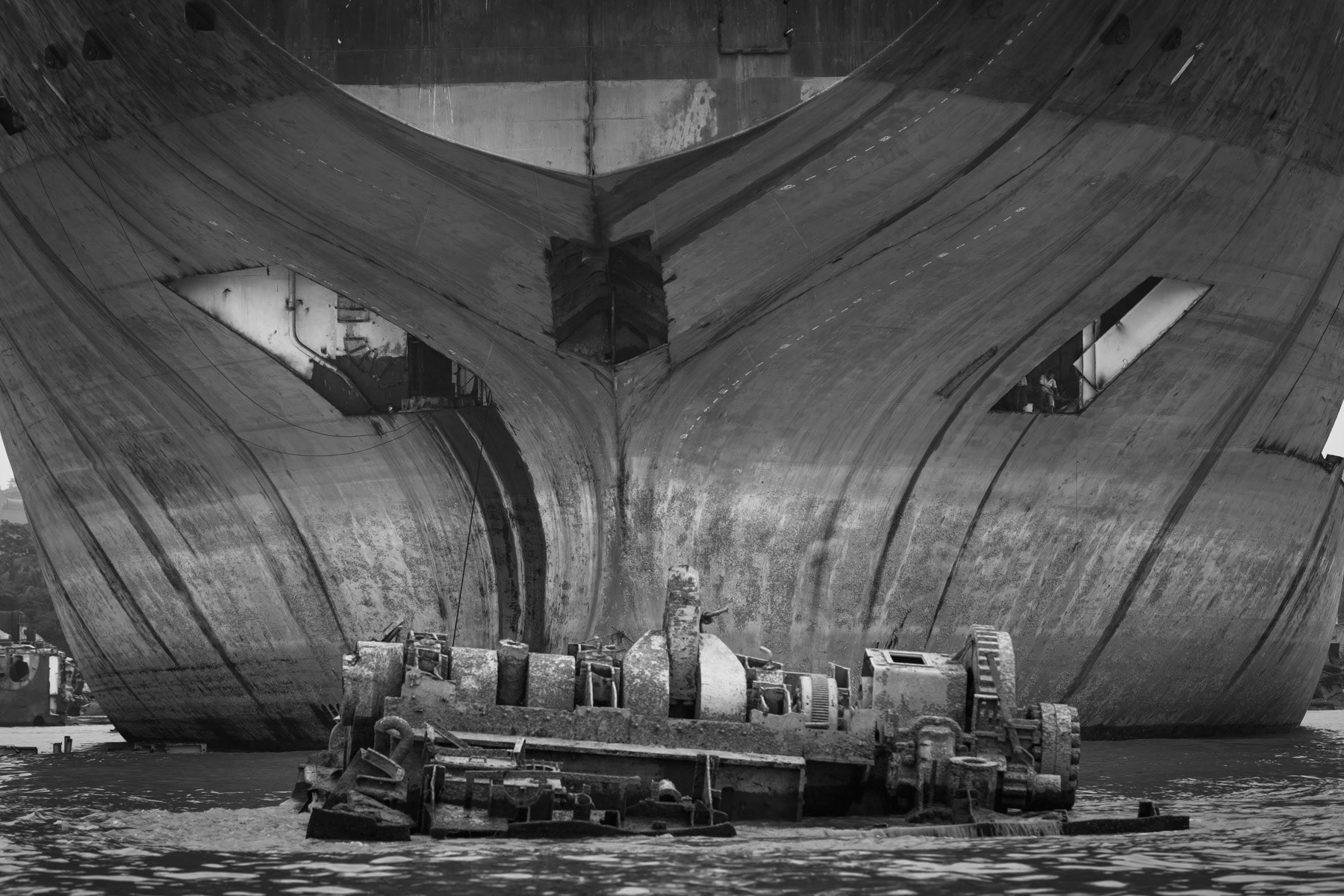
Bhatiary ship breaking yards, Bangladesh, October 2014
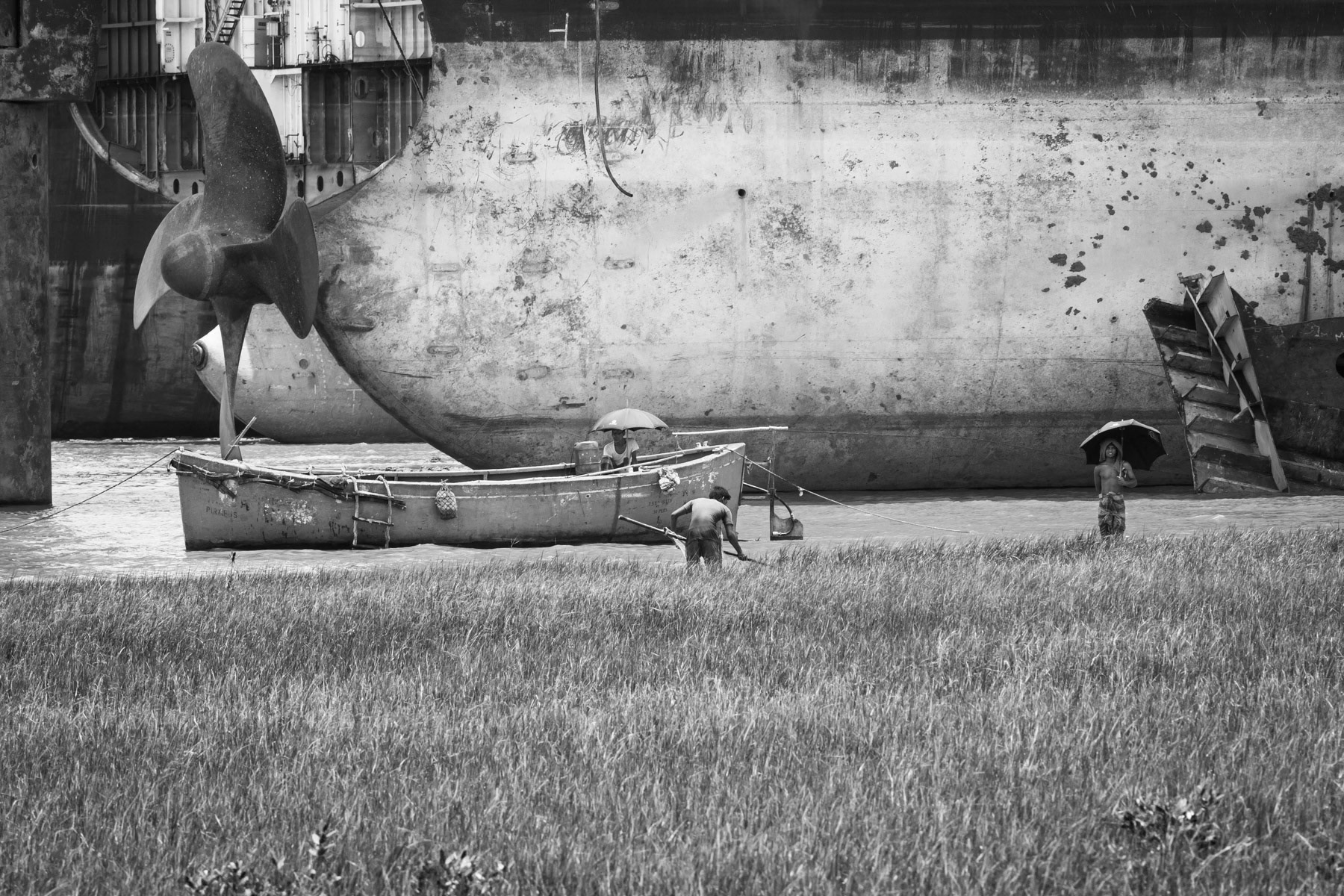
Fishermen catching shrimps, Ship-breaking yards, Chittagong, June 2015
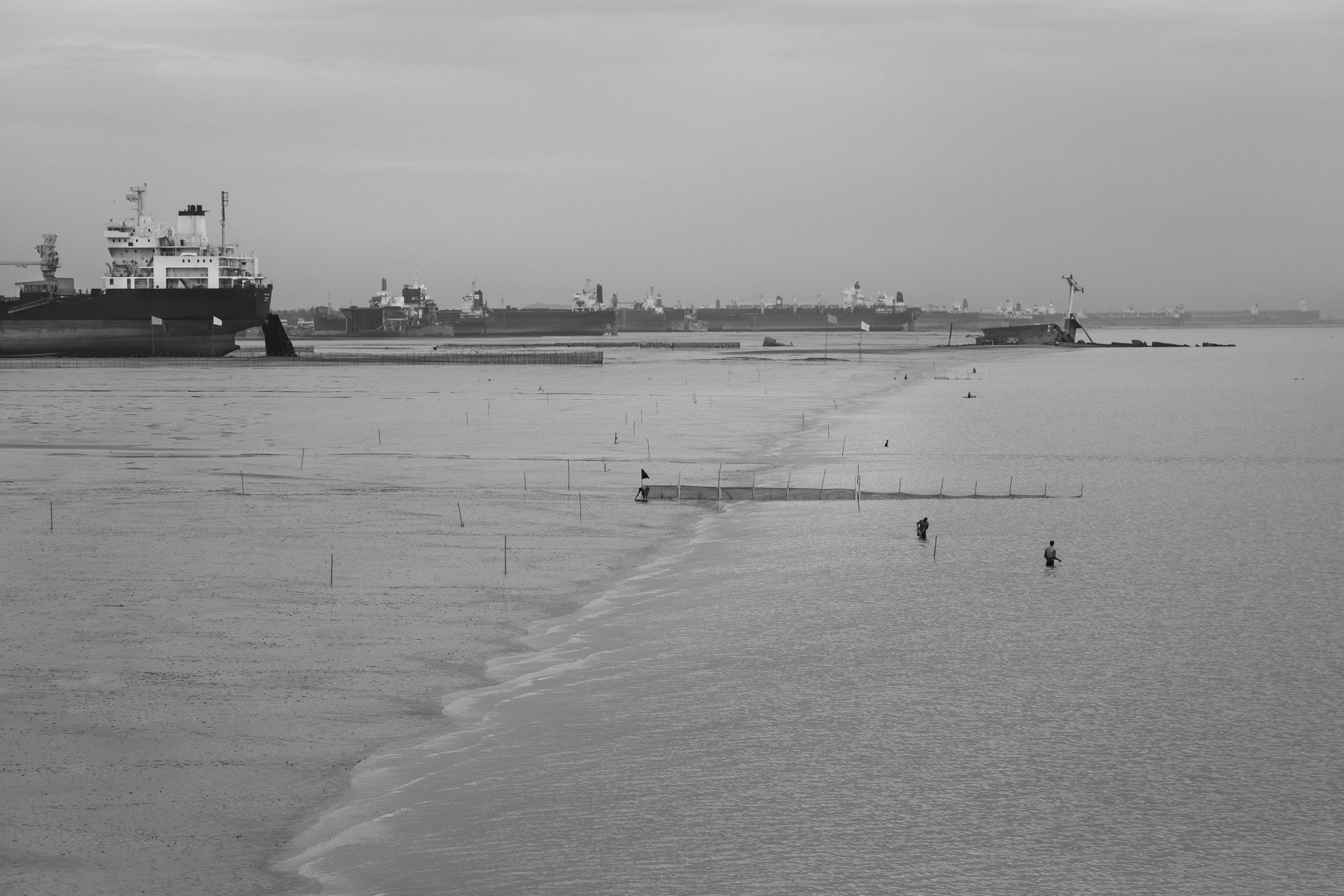
Kumira shore filled with boats being torn apart, Chittagong, Bangladesh, October 2014
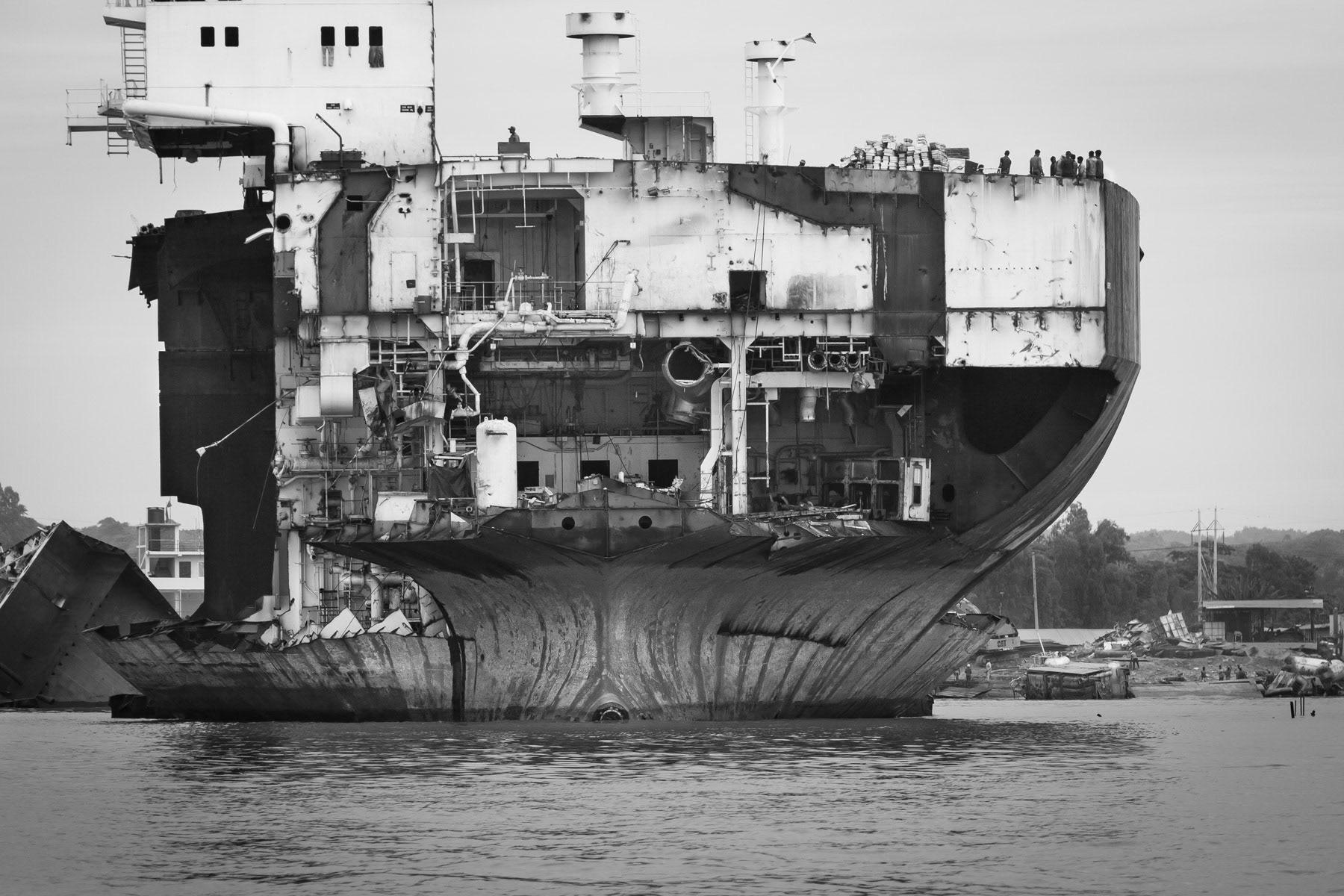
Final dismantling stage. Once the vessel is cut, the larger parts will be further torn apart on the beach before being sold on. Bhatiary ship breaking yards, Bangladesh, October 2014
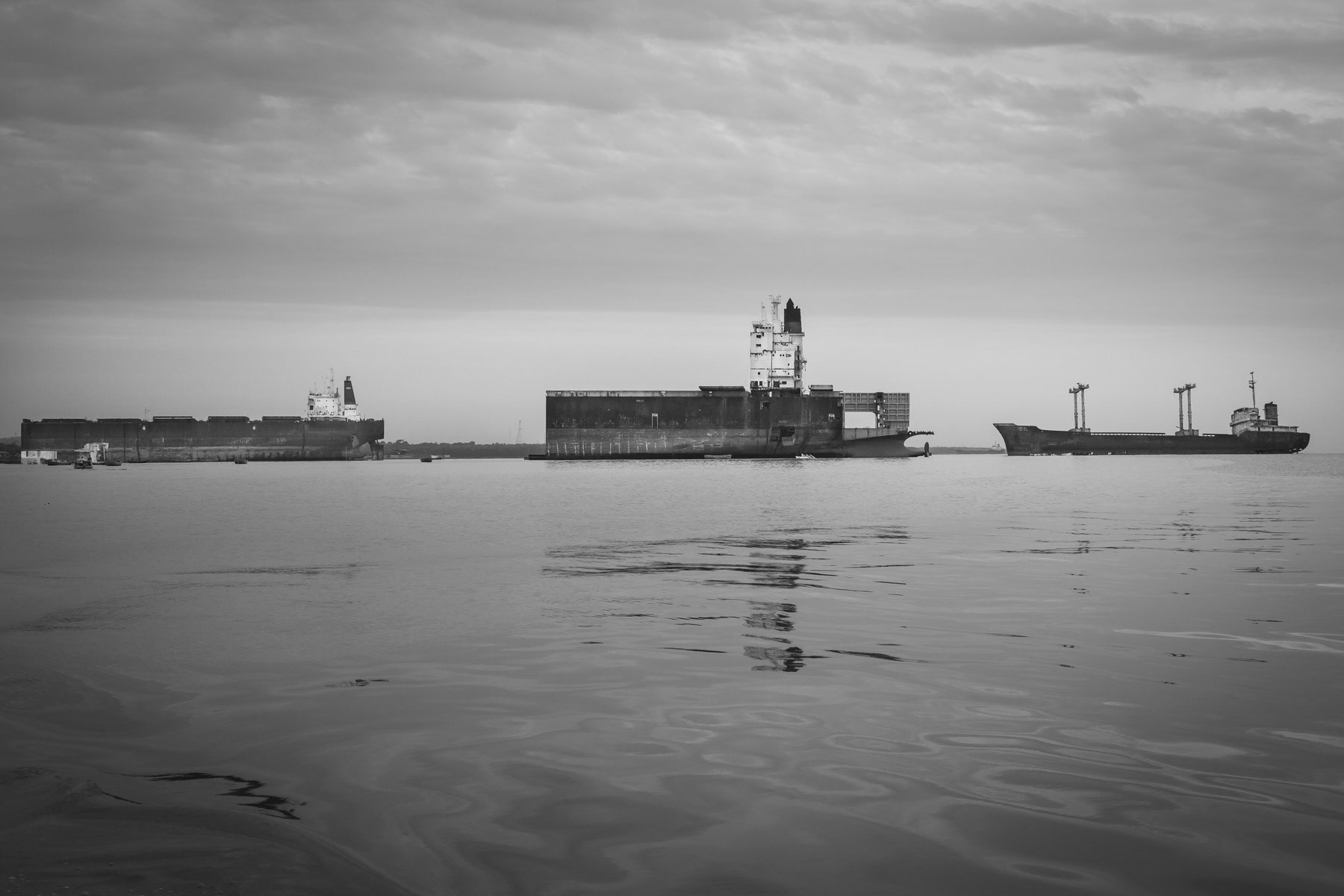
Vessels standed and ready to be manually dismantled. Bhatiary ship breaking yards, Chittagong, Bangladesh, October 2014
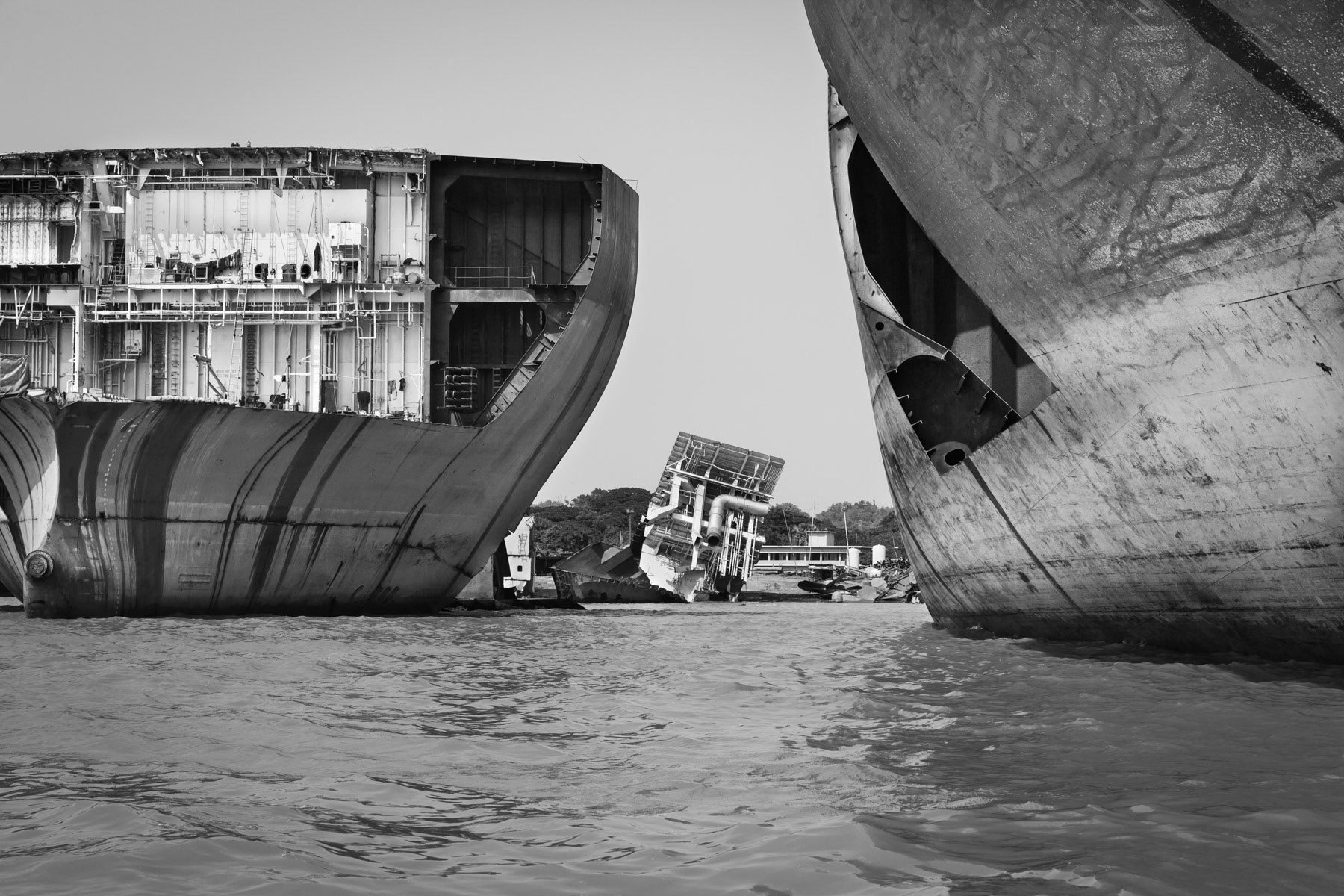
Final stage of a dismembered boat. Bhatiary ship breaking yards, Chittagong, Bangladesh, June 2015
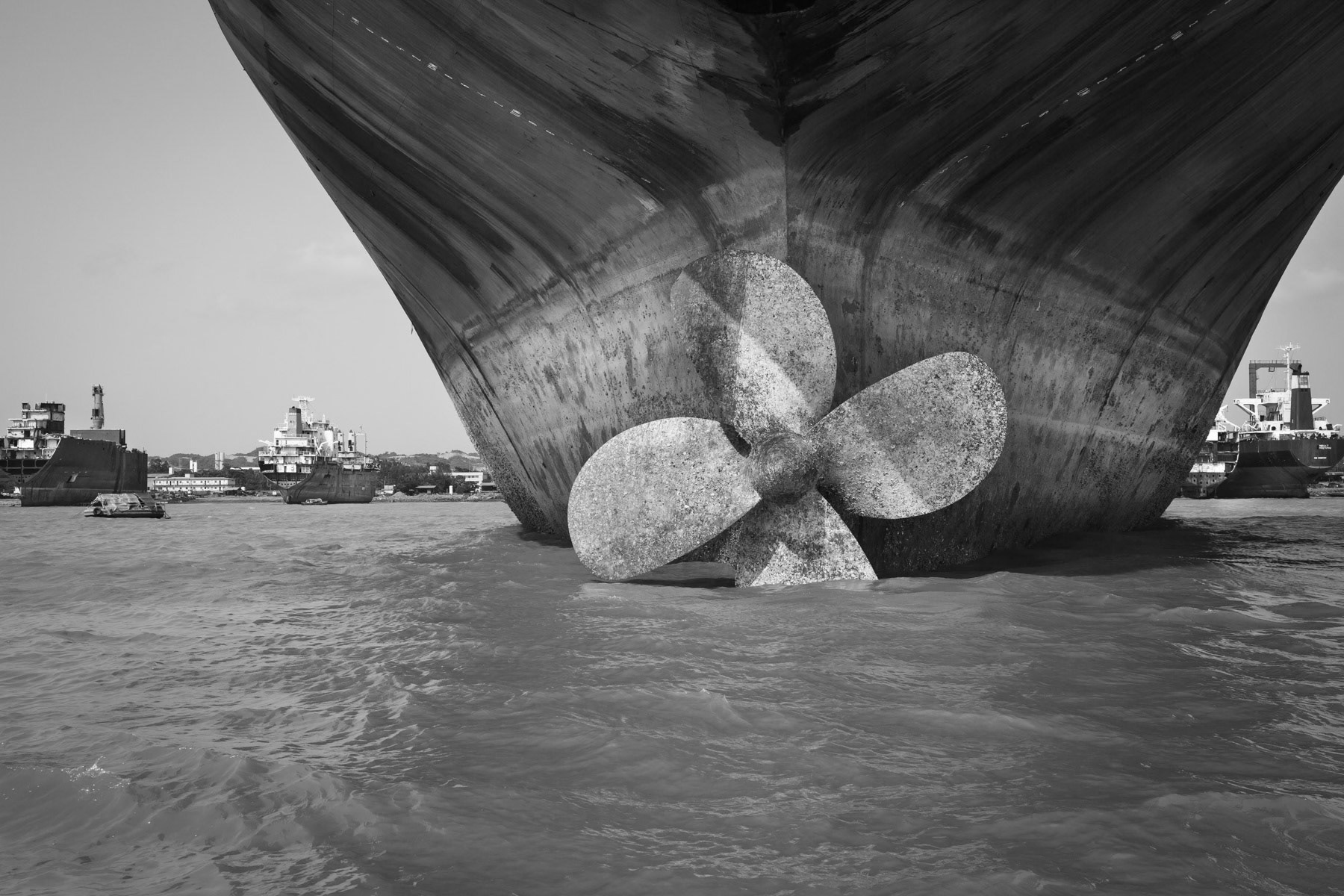
Ship-breaking yard during high tide, Bhatiary north of Chittagong, Bangladesh, June 2015
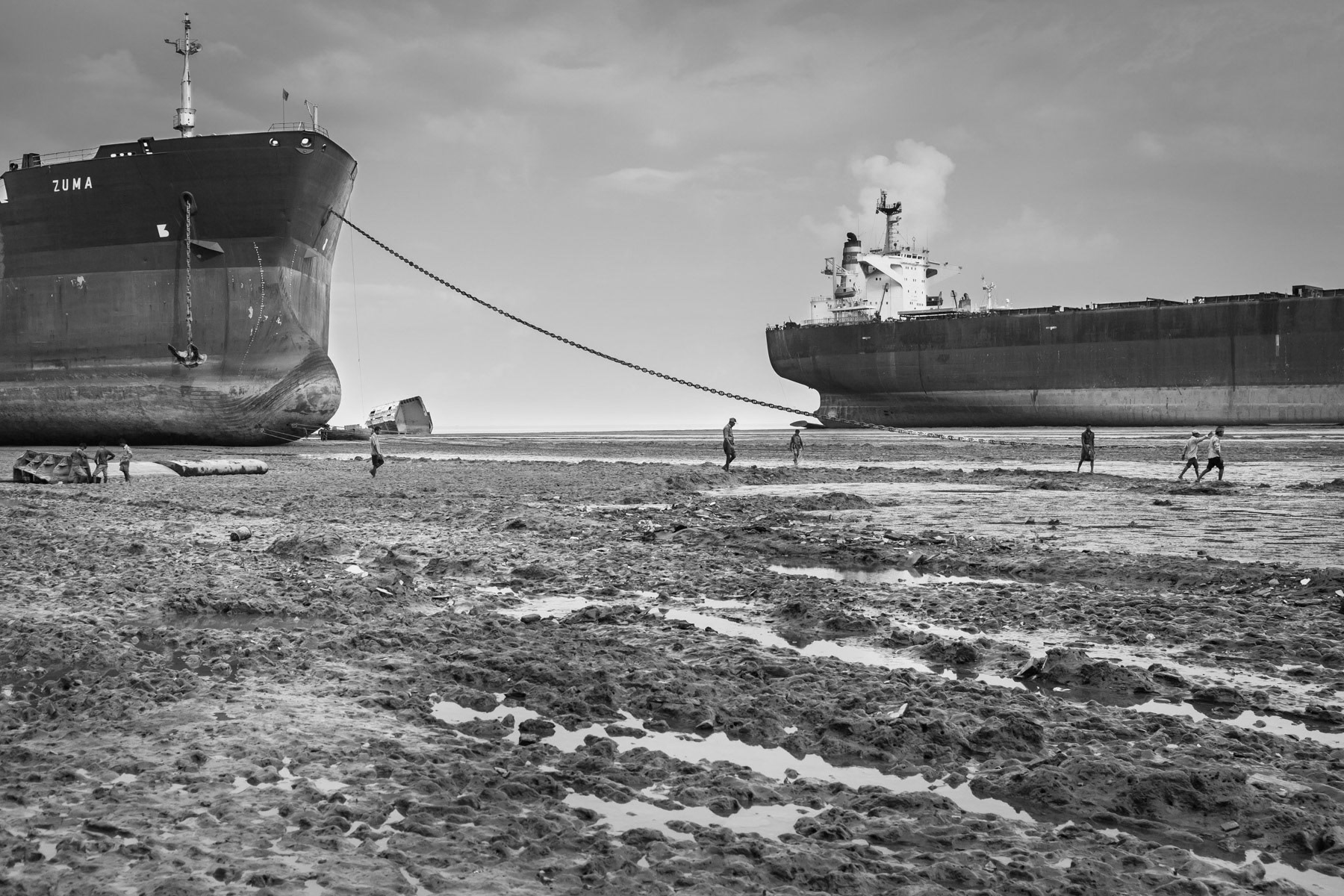
Heavily polluted shore south of Chittagong, Kumira ship breaking yards, Bangladesh, June 2015
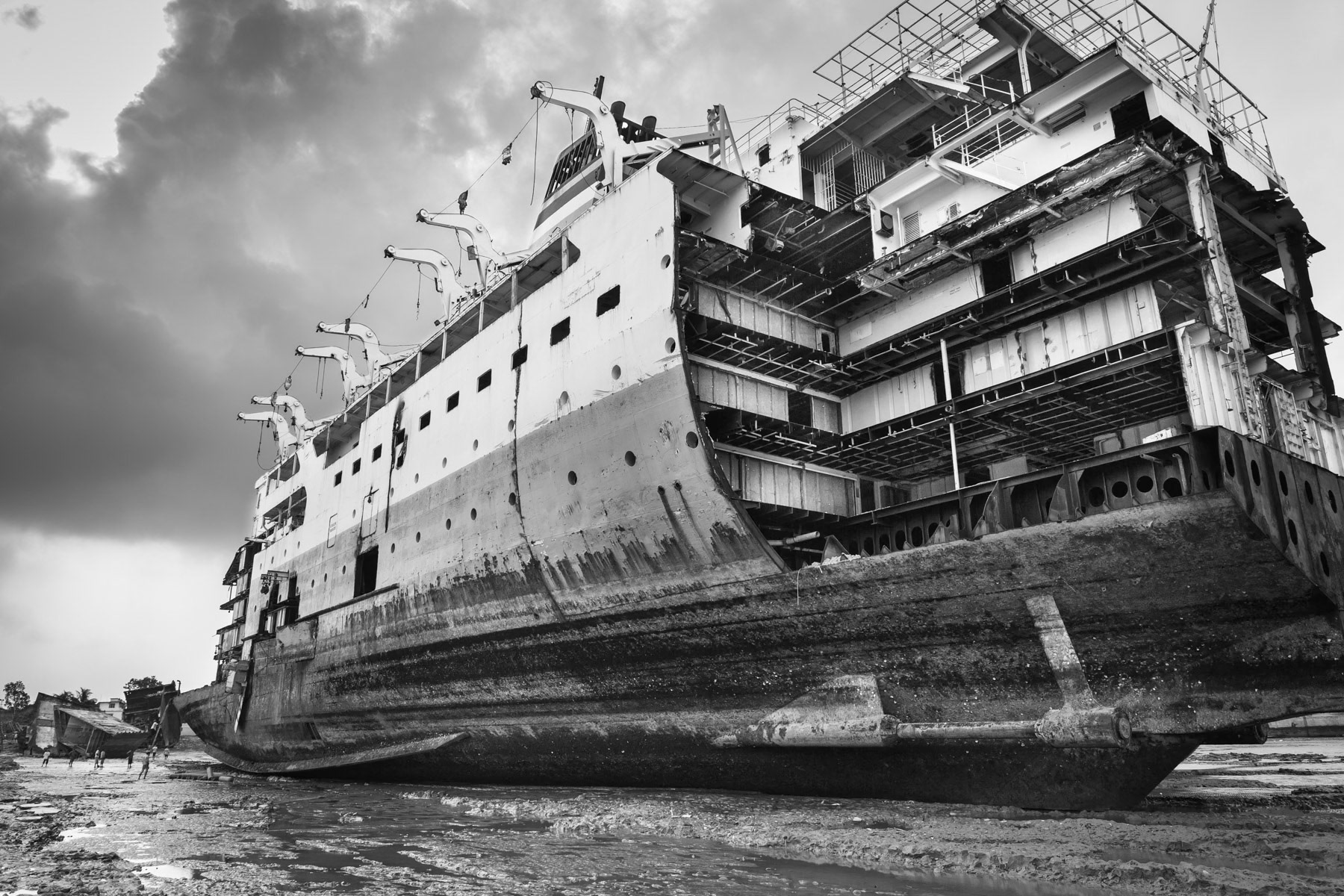
Ship-breaking yards of Chittagong, June 2015
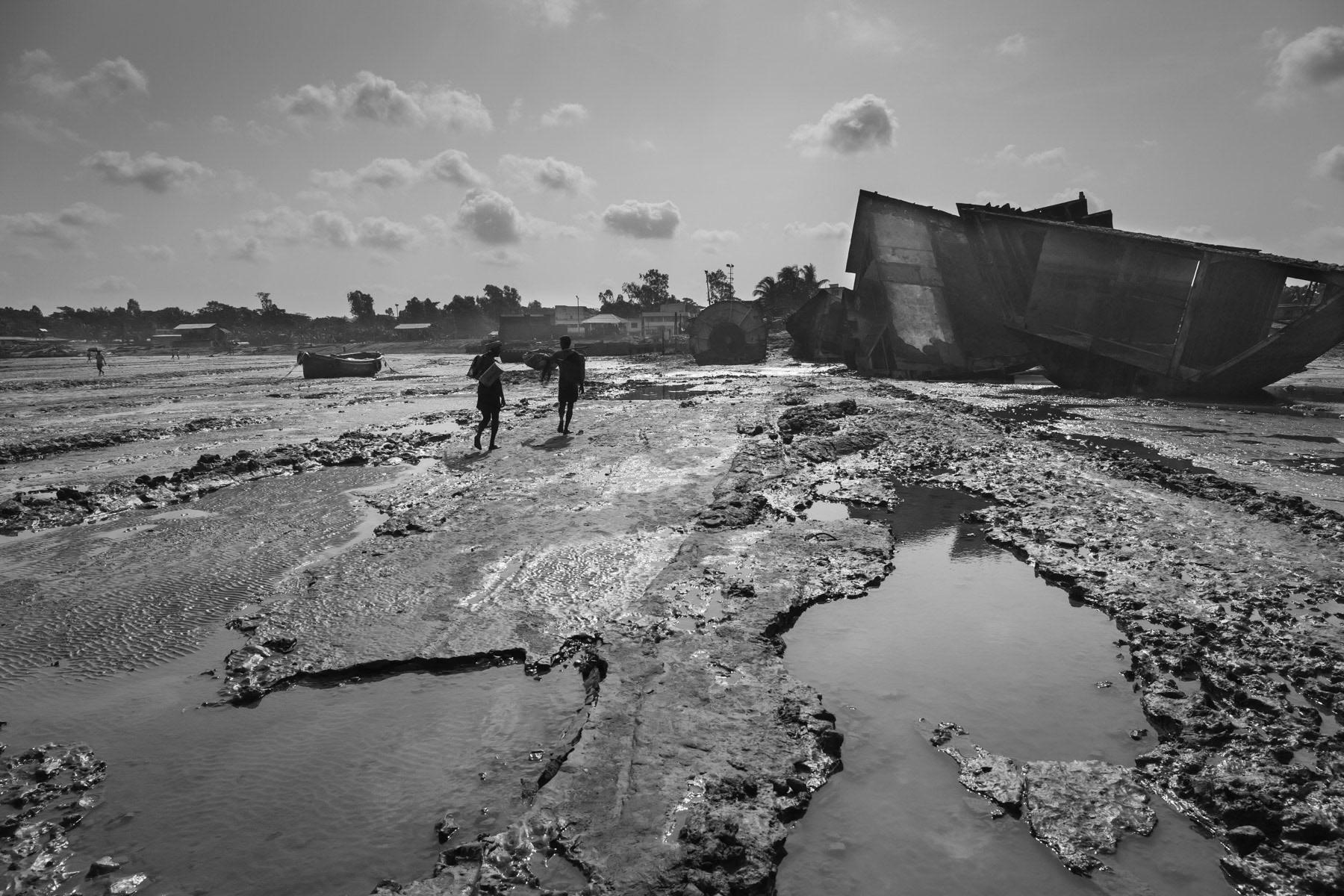
Heavily polluted shore south of Chittagong, Kumira ship breaking yards, Bangladesh, June 2015
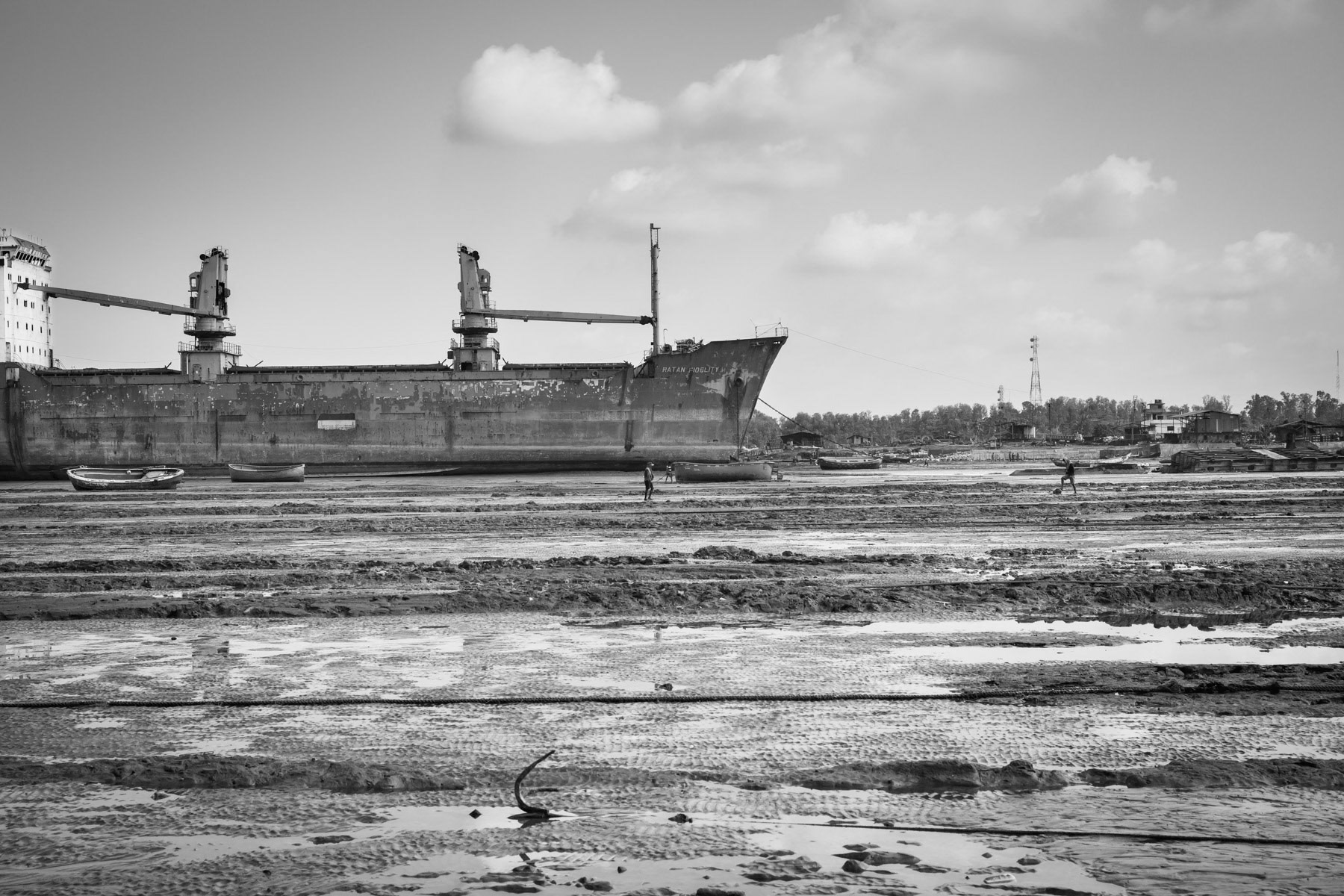
Heavily polluted shore south of Chittagong, Kumira ship breaking yards, Bangladesh, June 2015
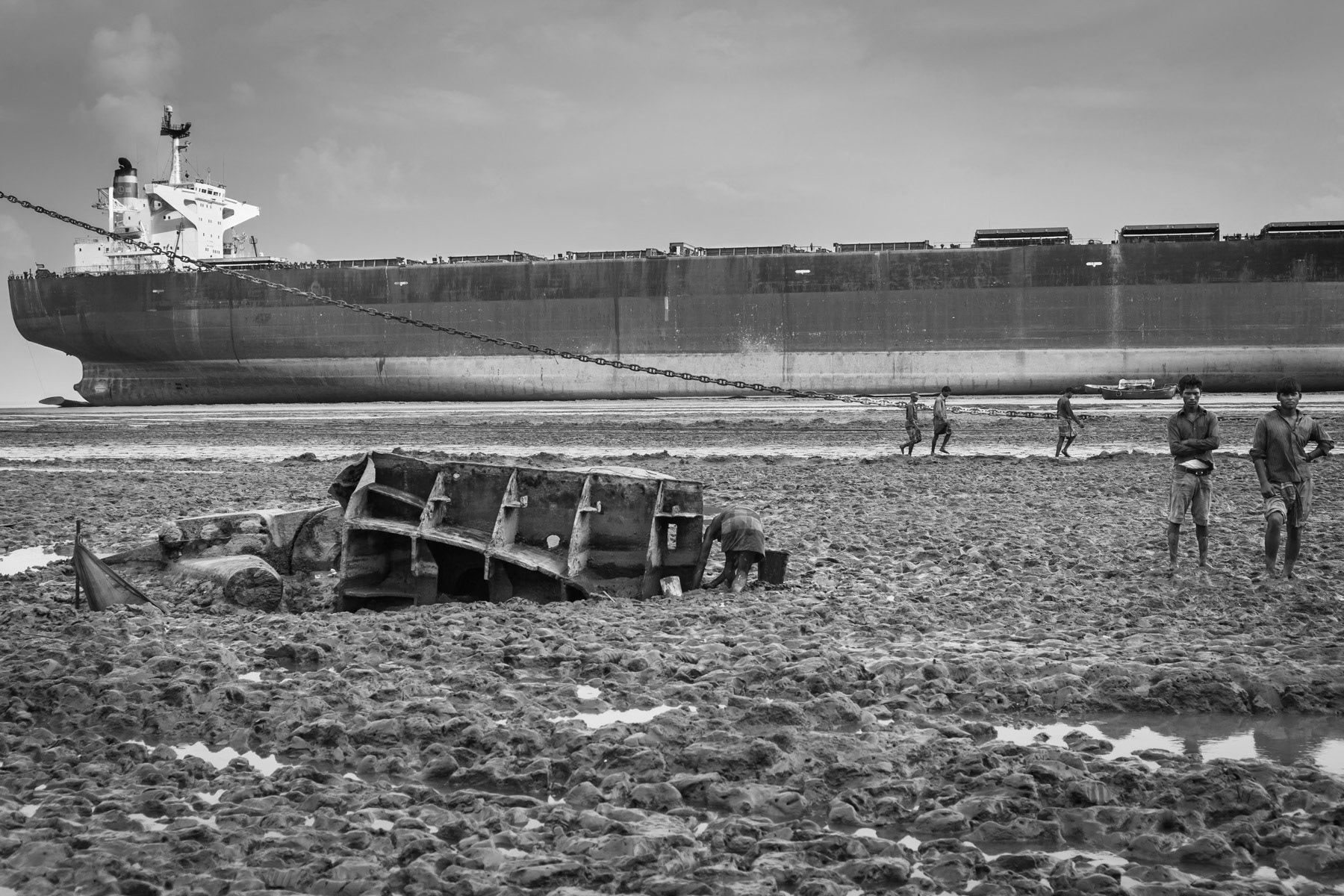
Heavily polluted shore south of Chittagong, Kumira ship breaking yards, Bangladesh, June 2015
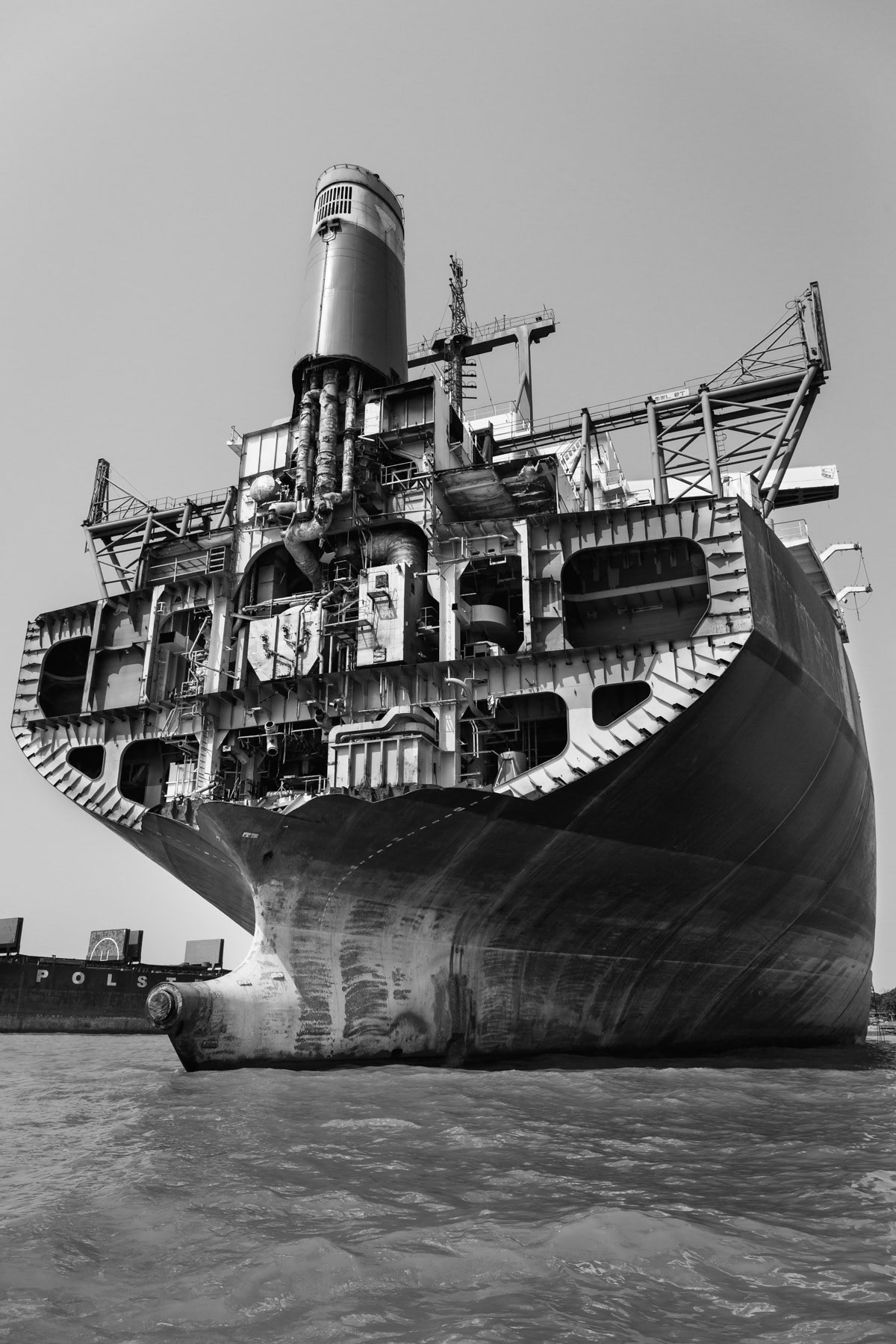
Ship-breaking yard on the beaches of Bhatiary, Chittagong, Bangladesh, June 2015
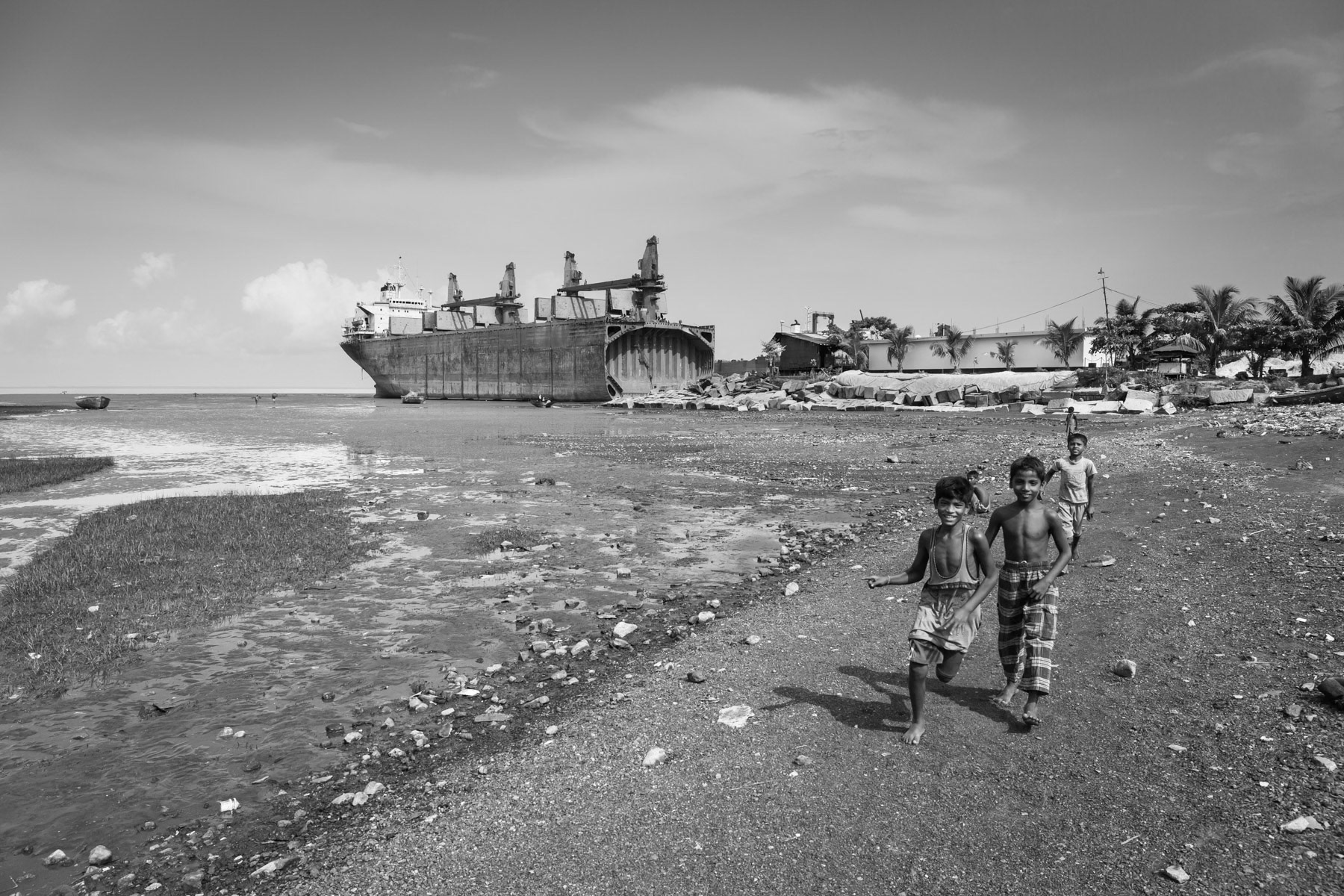
Access point between ship-breaking yards. Due to the expansion of ship-breaking yards, local communities living along the shore have been slowly cut off from the sea, their main source of income. Kumira, Bangladesh, June 2015
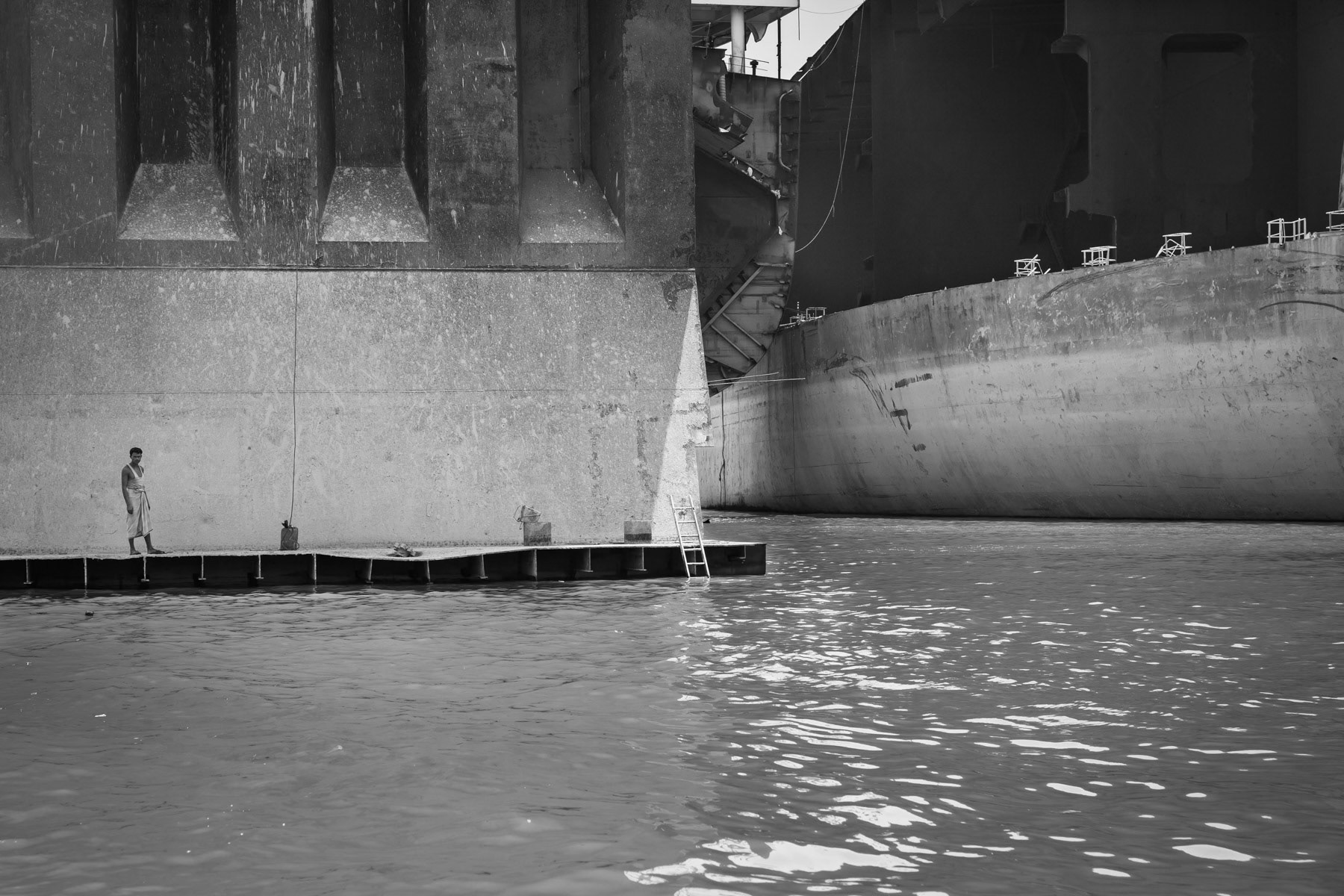
Partly dismembered vessel, Chittagong ship-breaking yards, Bangladesh, June 2015
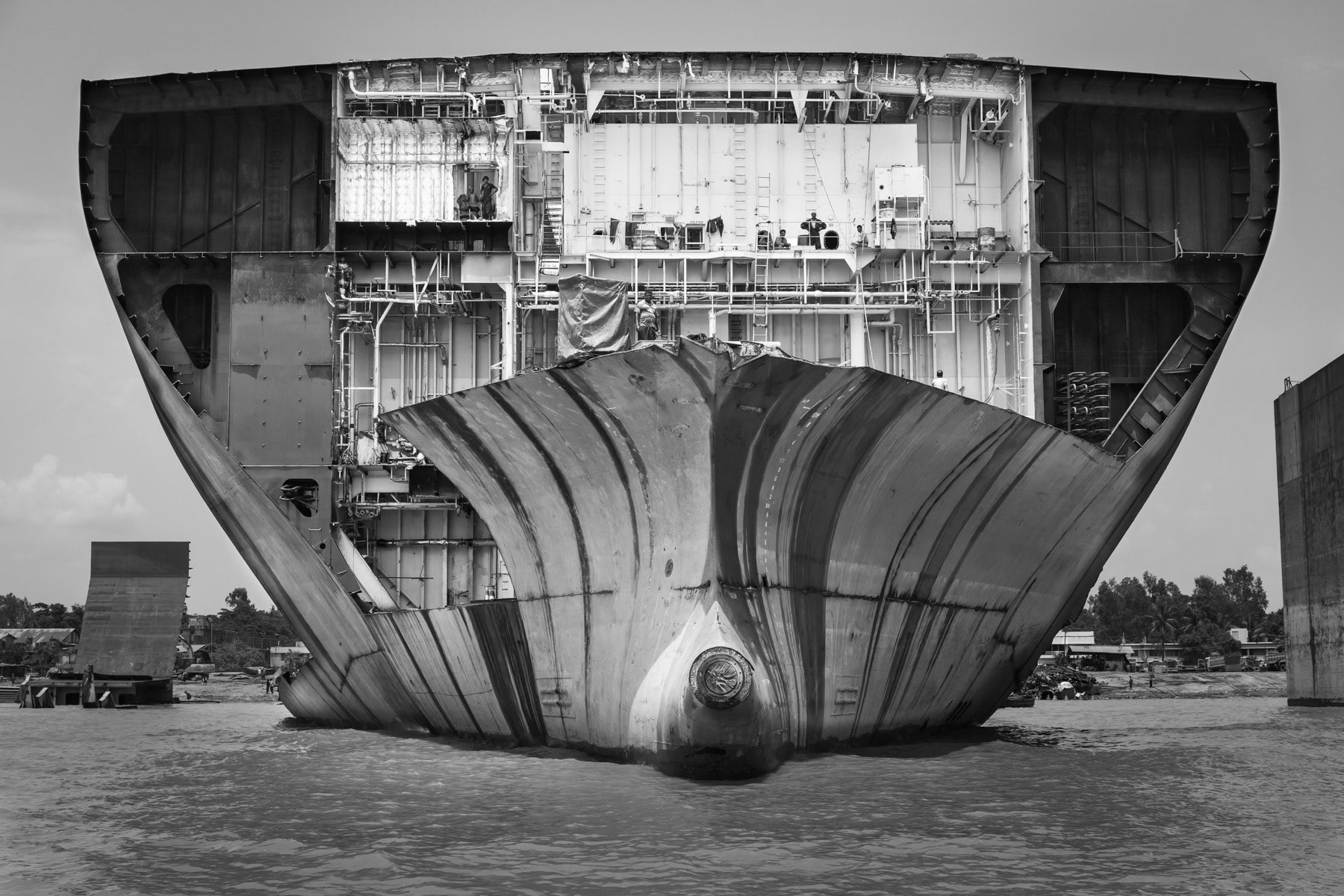
Final stage of a dismembered boat. Bhatiary ship breaking yards, Chittagong, Bangladesh, June 2015
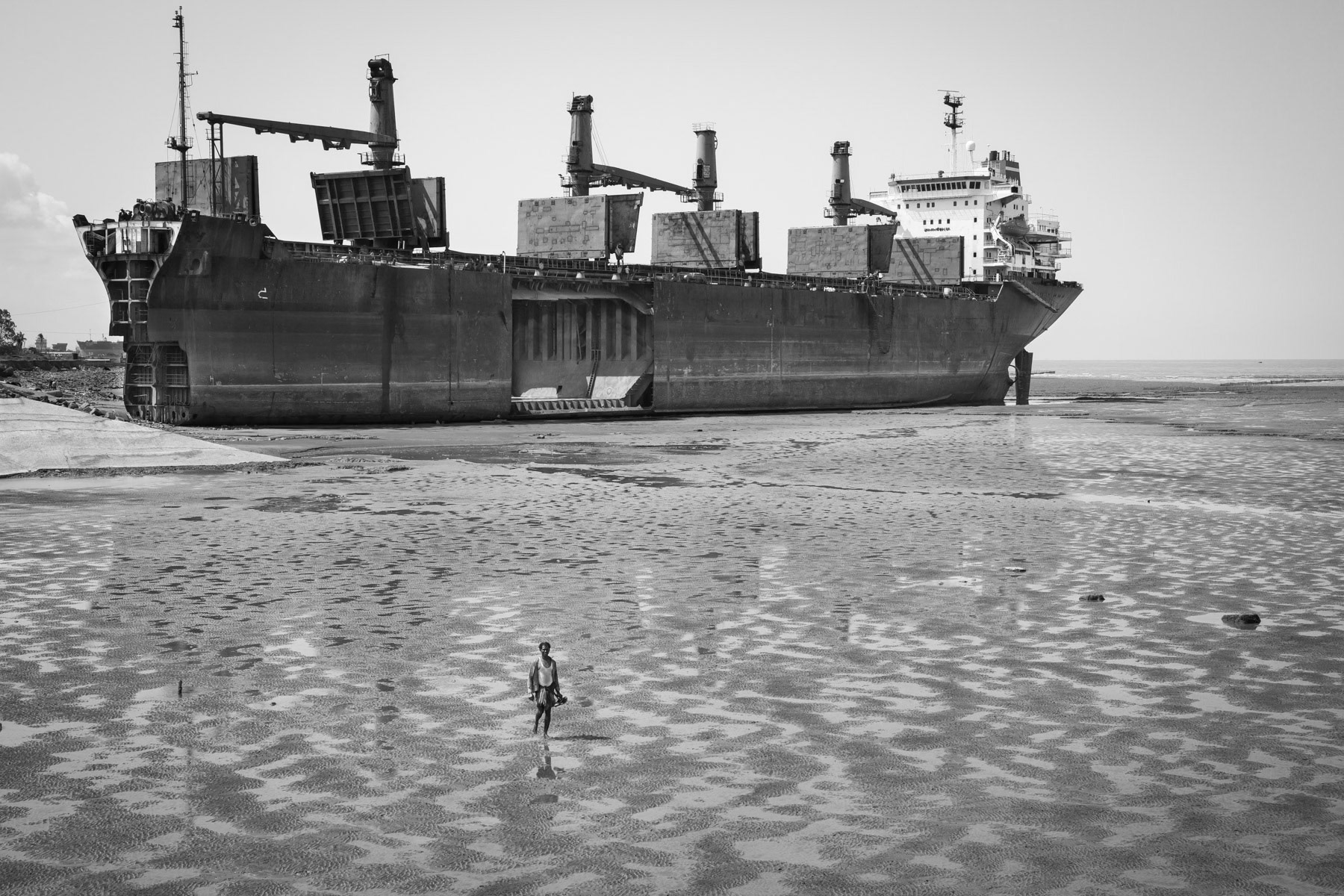
Ship-breaking yard on the beaches of Bhatiary, Chittagong, Bangladesh, June 2015
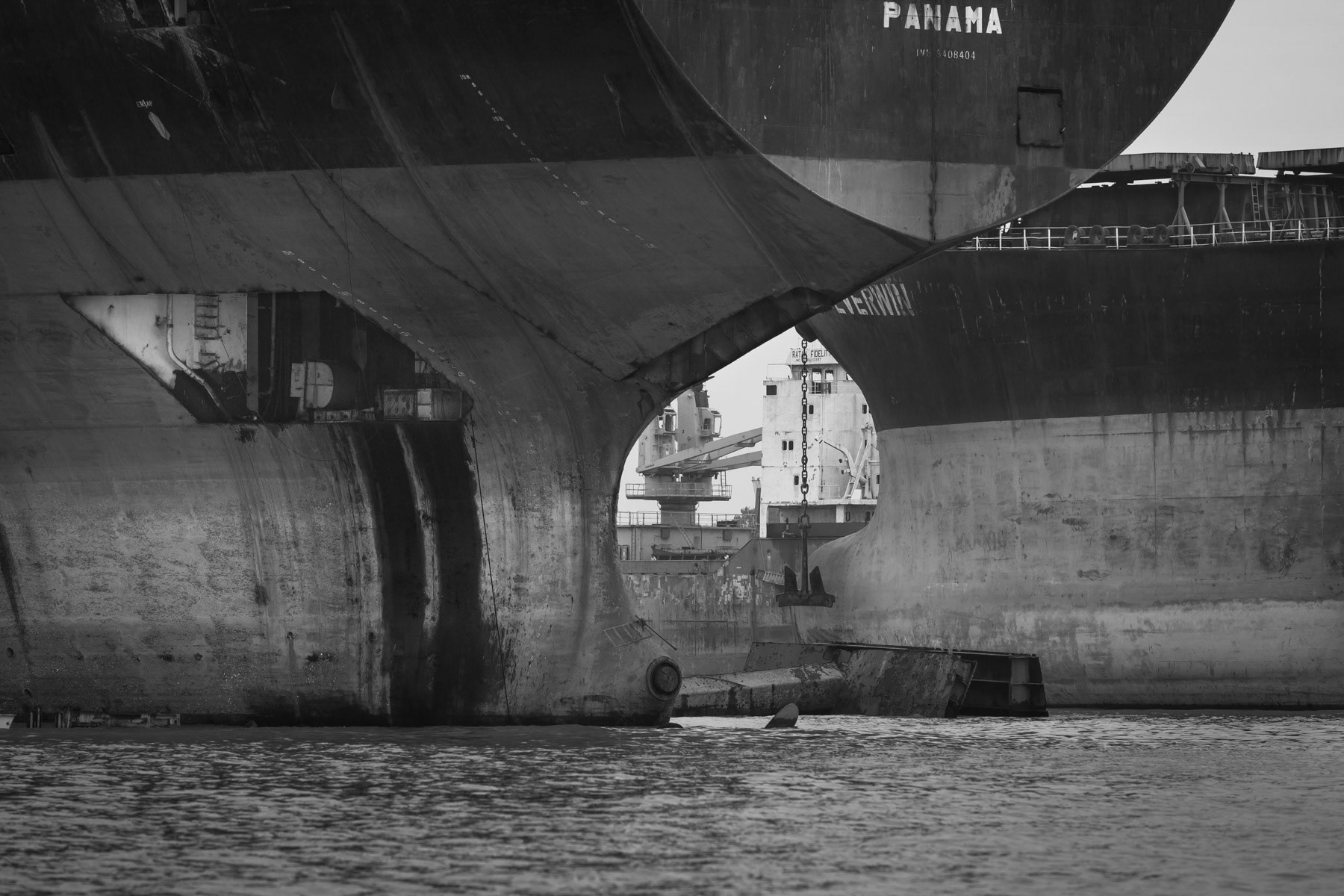
Genrators, engines and fuel are usually first dismembered before the ship is cut in parts. During this breaking up stage a lot of oil, fuel and other toxic waste finds it way on the over polluted beaches and sea. Bhatiary ship breaking yards, Bangladesh, October 2014
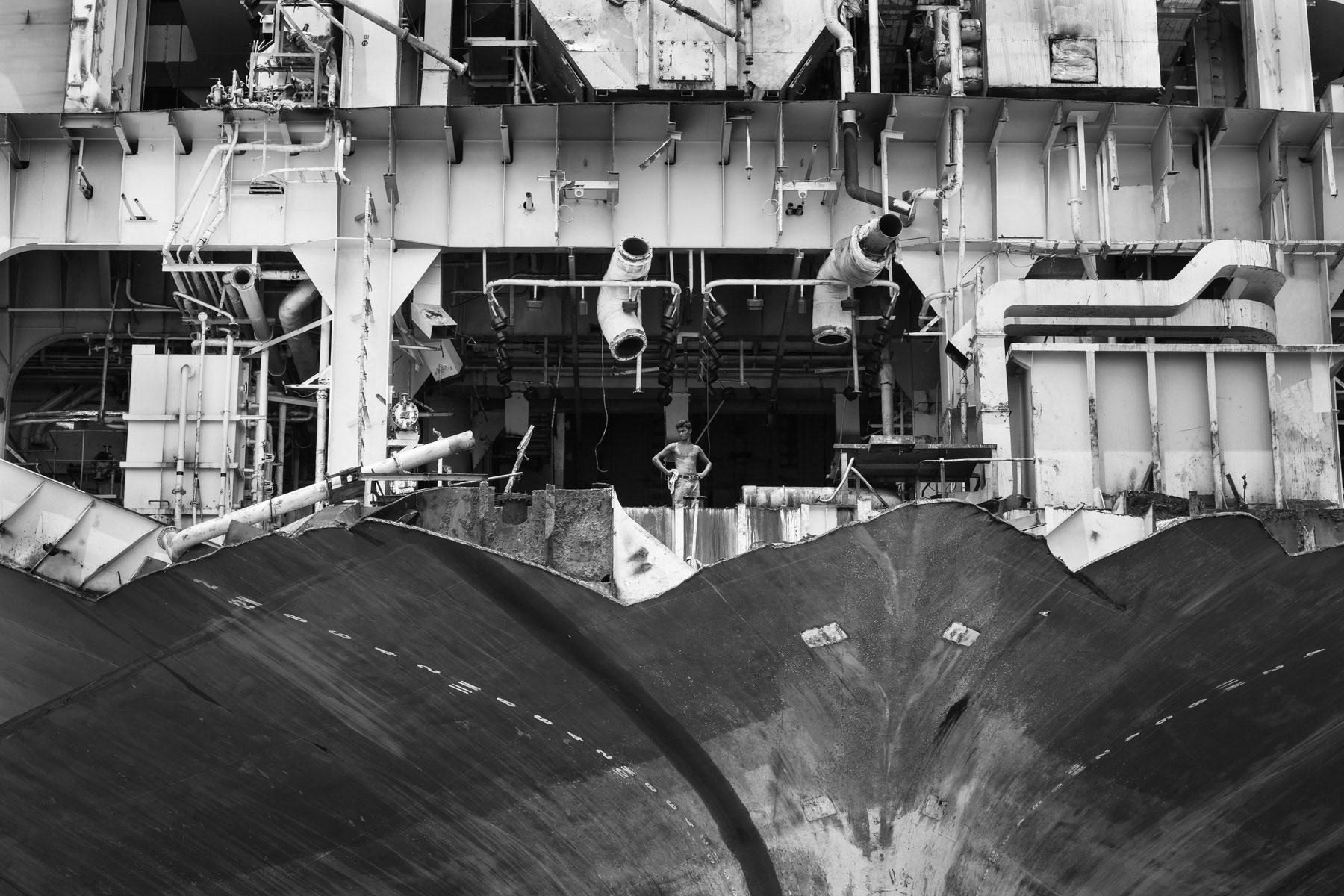
Final stage of a dismembered boat. Bhatiary ship breaking yards, Chittagong, Bangladesh, June 2015
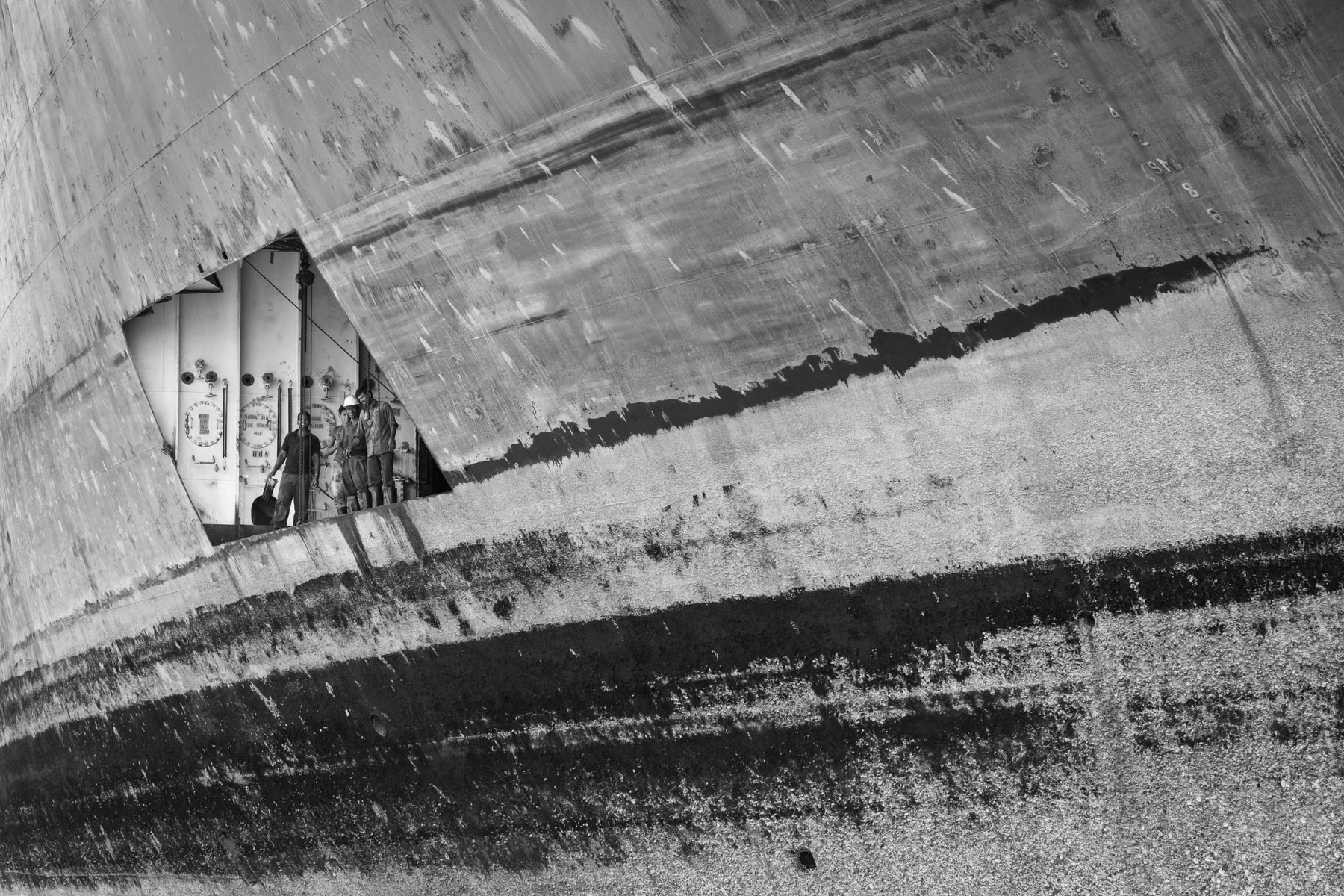
Genrators, engines and fuel are usually first extracted before the ship is cut in parts. During this breaking up stage a lot of oil, fuel and other toxic waste finds it way on the over polluted beaches and sea. Bhatiary ship breaking yards, Bangladesh, June 2015
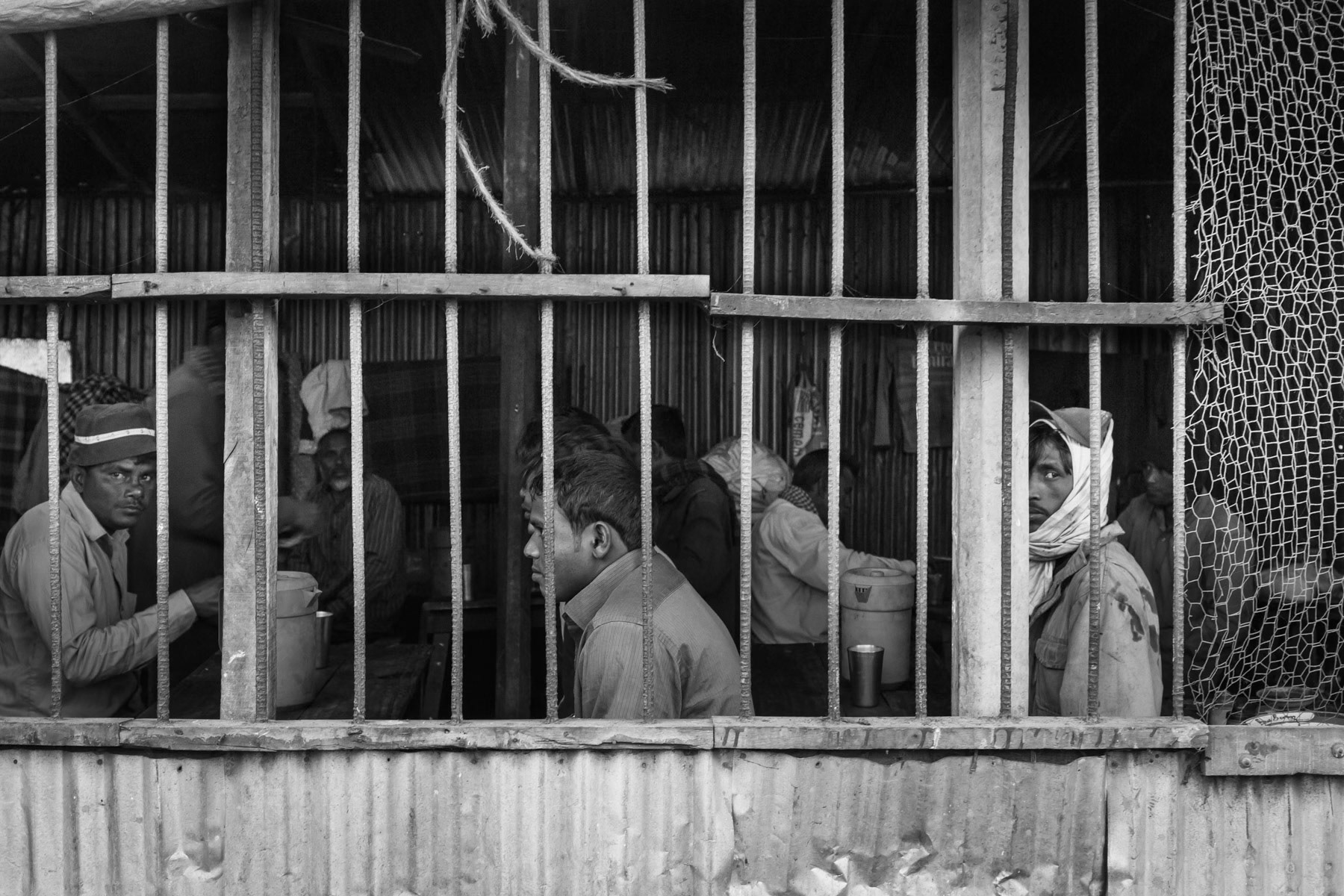
Shipbreaking yards workers before starting the day dismantling ships, tea shop in Bhatiary, Bangladesh, December 2015
